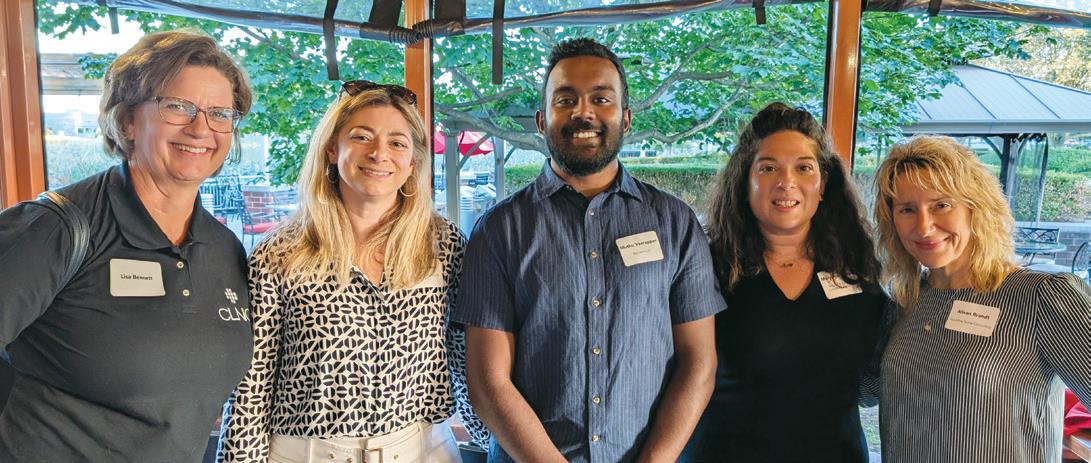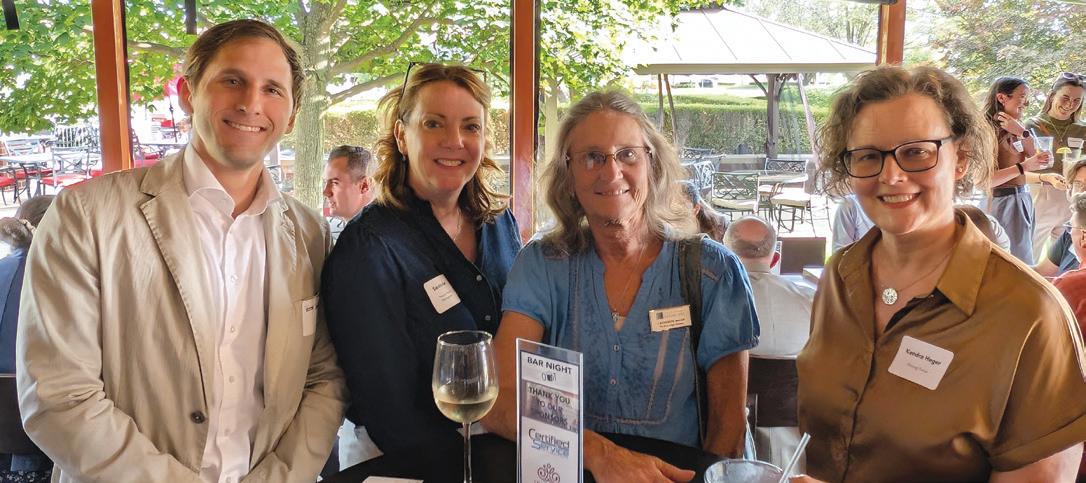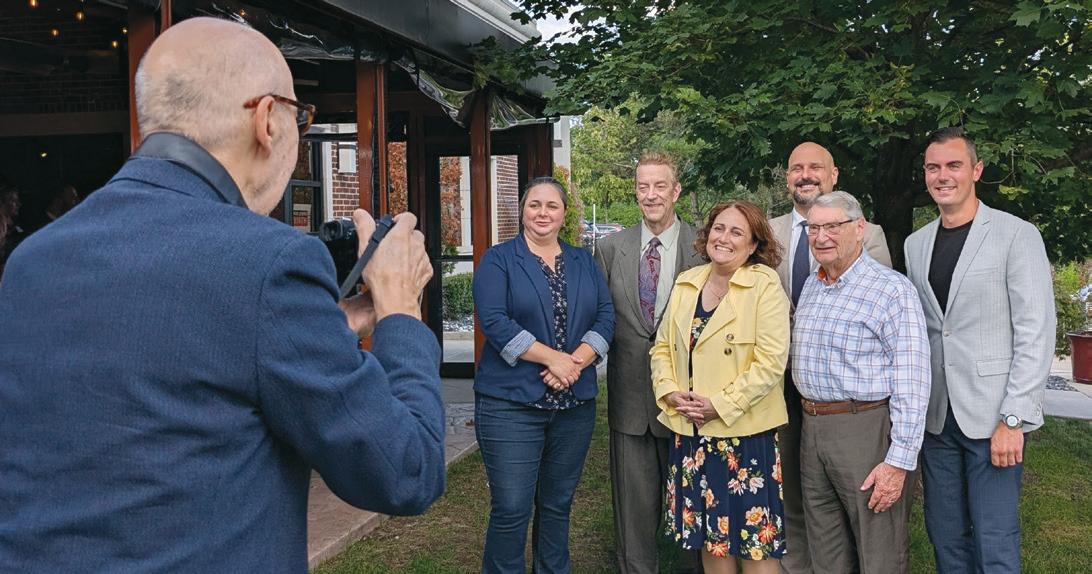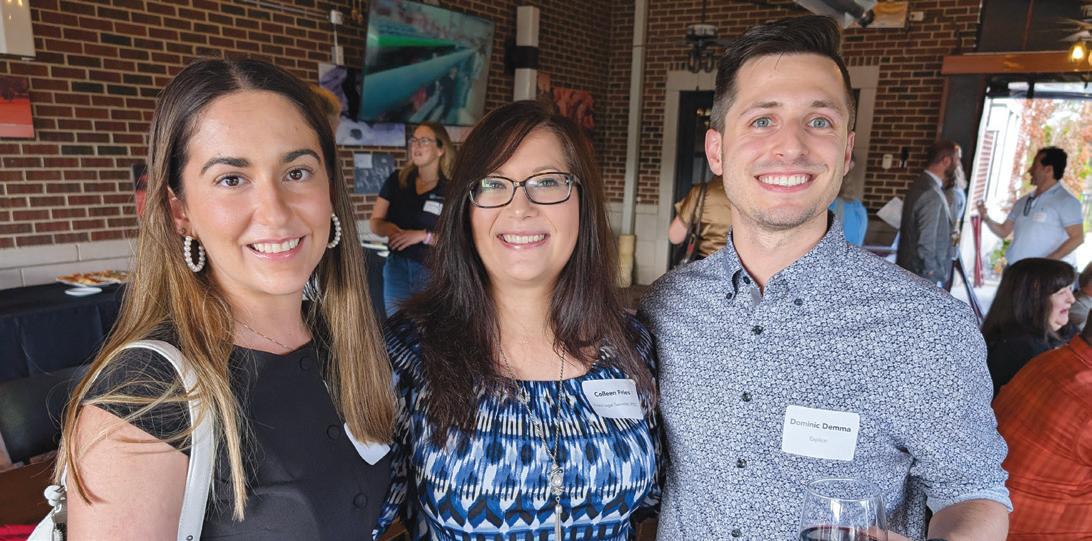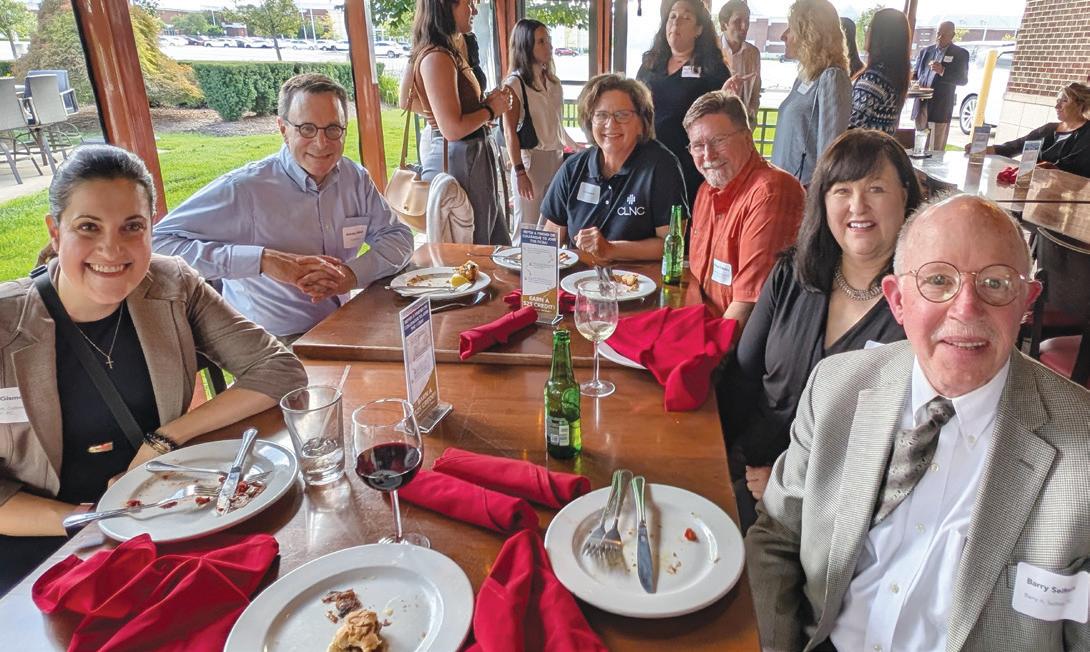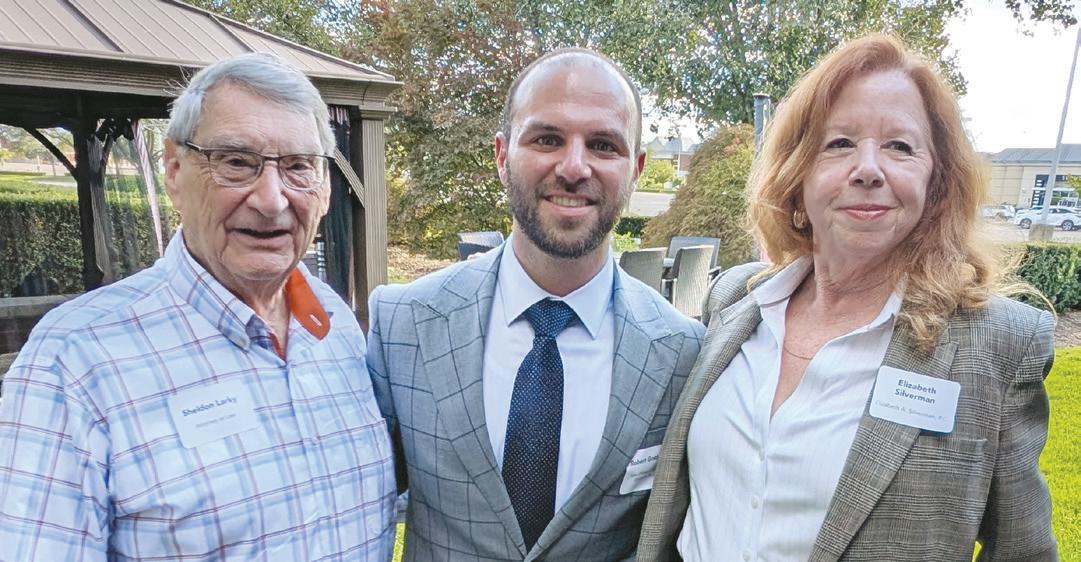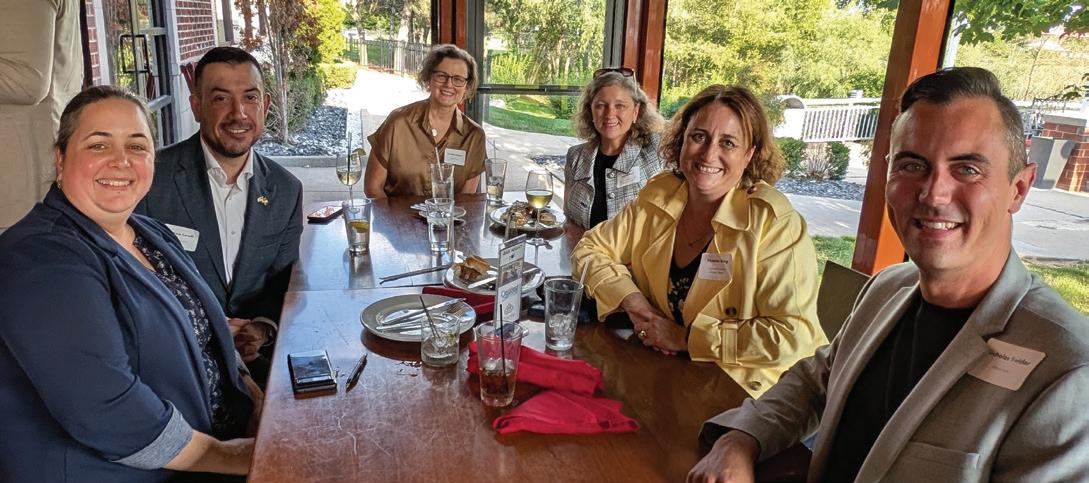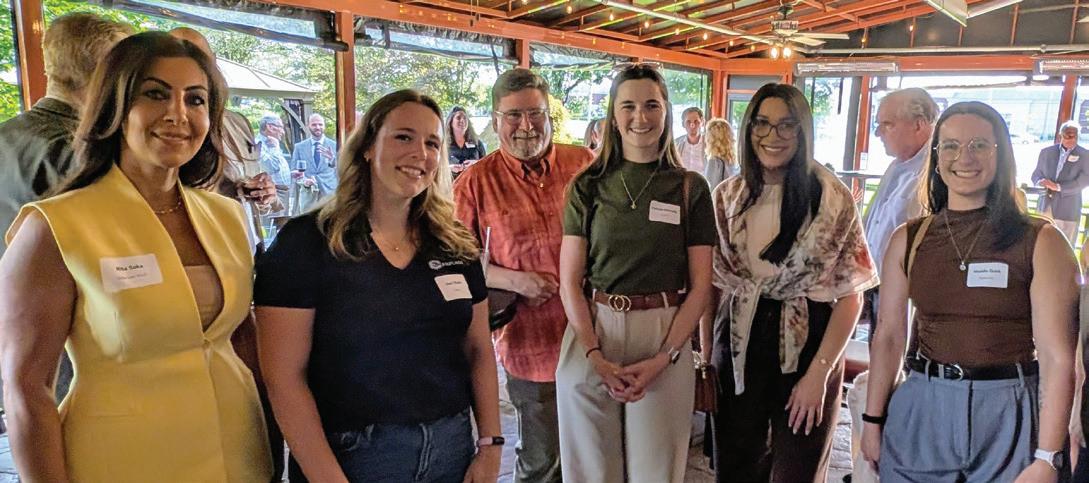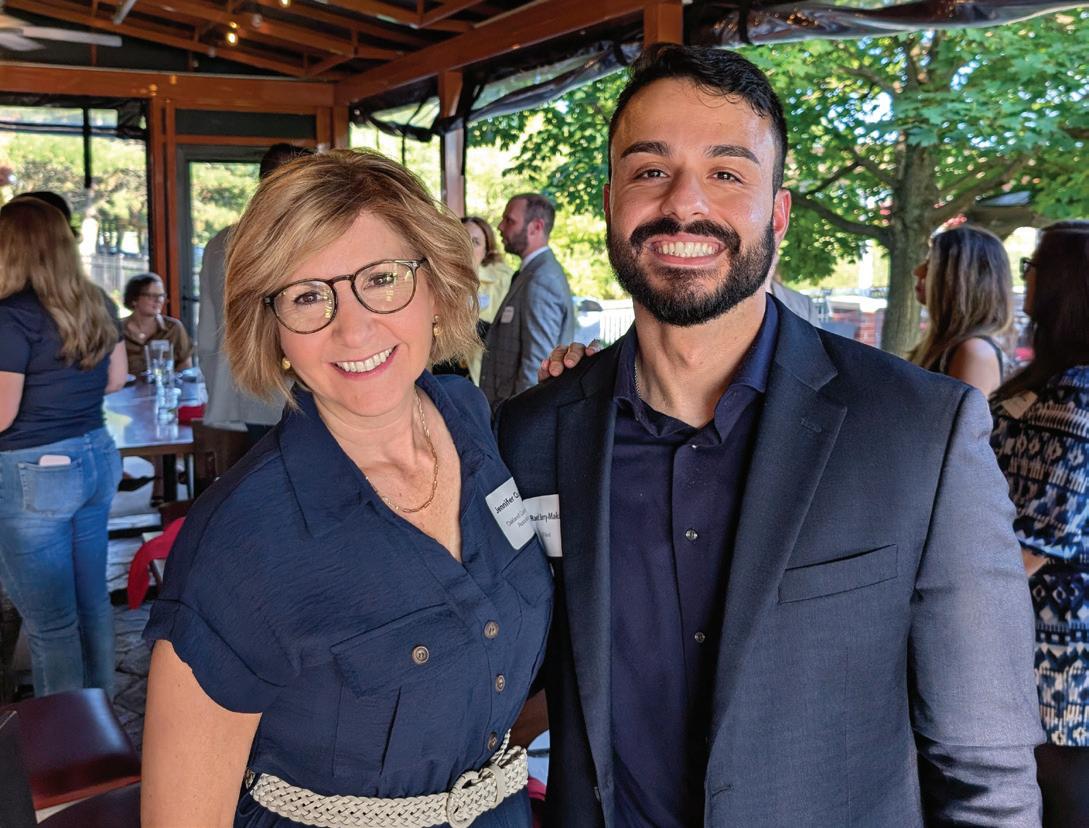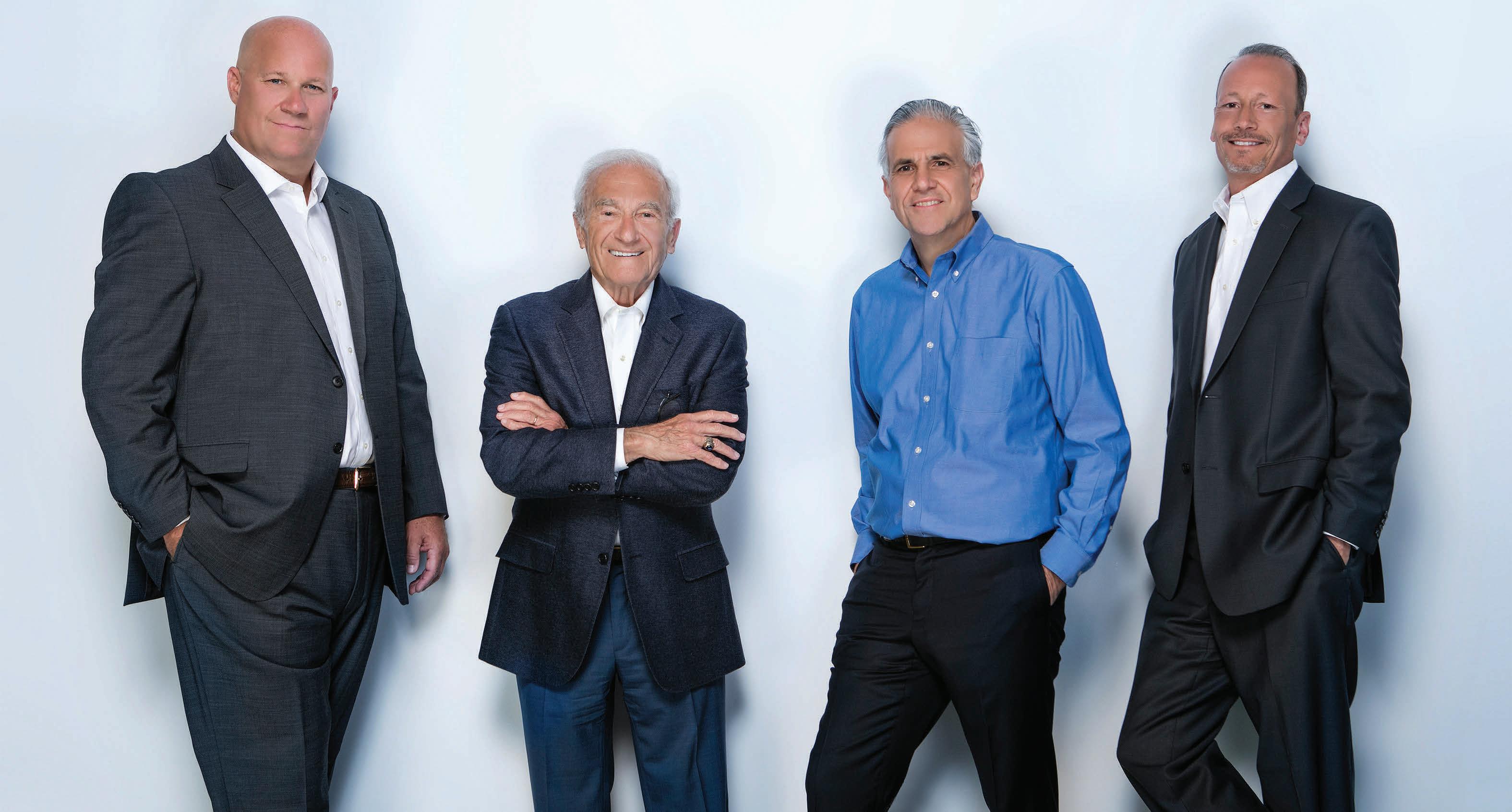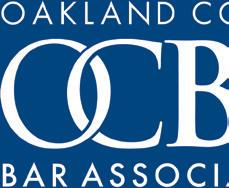
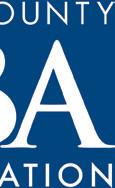

Defending Difficult Clients Niche Law Practices
The Links Between Law and Math







Defending Difficult Clients Niche Law Practices
The Links Between Law and Math



OAKLAND COUNTY BAR ASSOCIATION
1760 S. Telegraph Road, Suite 100
Bloomfield Hills, Michigan 48302-0181
(248) 334-3400 • FAX (248) 334-7757
www.ocba.org
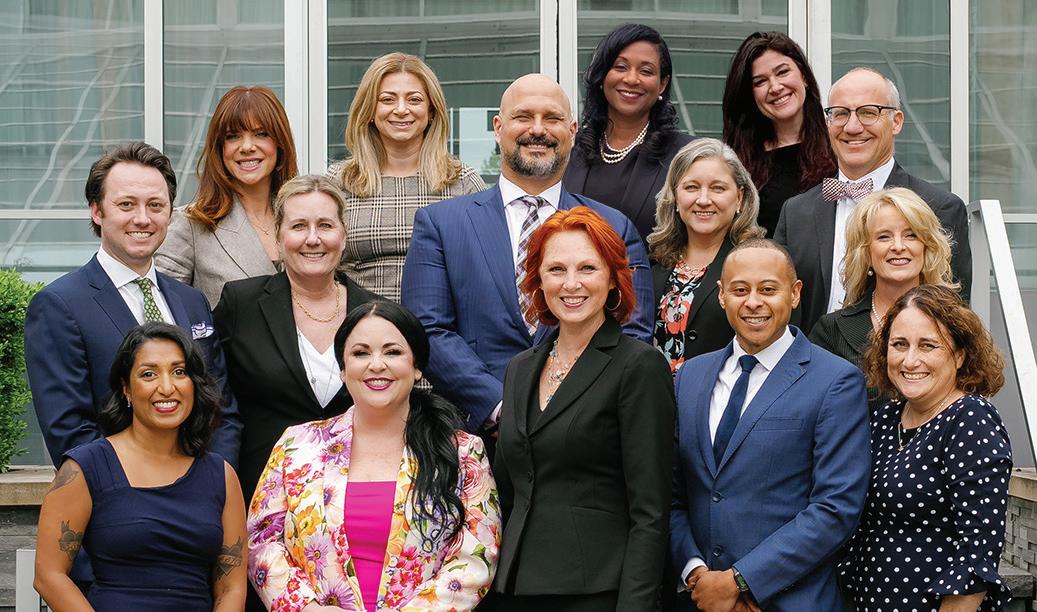
PRESIDENT
Sarah E. Kuchon
PRESIDENT-ELECT
Aaron V. Burrell
VICE PRESIDENT
Kari L. Melkonian
TREASURER
Victoria B. King
SECRETARY
Syeda F. Davidson
EXECUTIVE DIRECTOR
Jennifer Quick
LACHES EDITORIAL BOARD
Victoria B. King
Syeda F. Davidson
Coryelle E. Christie
Lanita L. Carter
DIRECTORS
Julie L. Kosovec
Emily E. Long
Jennifer L. Lord
Moheeb H. Murray
Kimberley Ann Ward
Layne A. Sakwa
Silvia A. Mansoor
Stephen T. McKenney
James A. Martone
Jennifer J. Henderson
James W. Low
Thamara E. Sordo-Vieira
Xavier J. Donajkowski
Vincent C. Sallan
THE MISSION OF THE OAKLAND COUNTY BAR ASSOCIATION IS TO SERVE THE PROFESSIONAL NEEDS OF OUR MEMBERS, IMPROVE THE JUSTICE SYSTEM AND ENSURE THE DELIVERY OF QUALITY LEGAL SERVICES TO THE PUBLIC.
Articles and letters that appear in LACHES do not necessarily reflect the official position of the Oakland County Bar Association, and their publication does not constitute an endorsement of views that may be expressed. Readers are invited to address their own comments and opinions to:
LACHES | Oakland County Bar Association 1760 S. Telegraph Rd., Ste. 100 Bloomfield Hills, MI 48302-0181
Publicationandeditingareatthediscretionoftheeditor.
Legal Calculations
Math ability, including strong analytical skills, logical reasoning, and basic arithmetic, is crucial in the legal field.
By Lisa M. Serra
How Student-Athletes Are Reclaiming Their NIL Rights: A Guide for Michigan Lawyers
Changes to sports law have meant that student-athletes retain more control over their name, image, and likeness.
10
in writing to Oakland County Bar Association, 1760 S. Telegraph, Ste. 100, Bloomfield Hills, MI 48302-0181.
ByMarkKlein 12
Defending Difficult Clients
Here are a few strategies to remain effective and compassionate even in the most frustrating circumstances.
ByJordanZuppke 16
Niche Law Practices: Creative, Entrepreneurial Law for Fun and Profit
Practicing law in a unique area of interest can open the door to fantastic opportunities and unexpected growth.

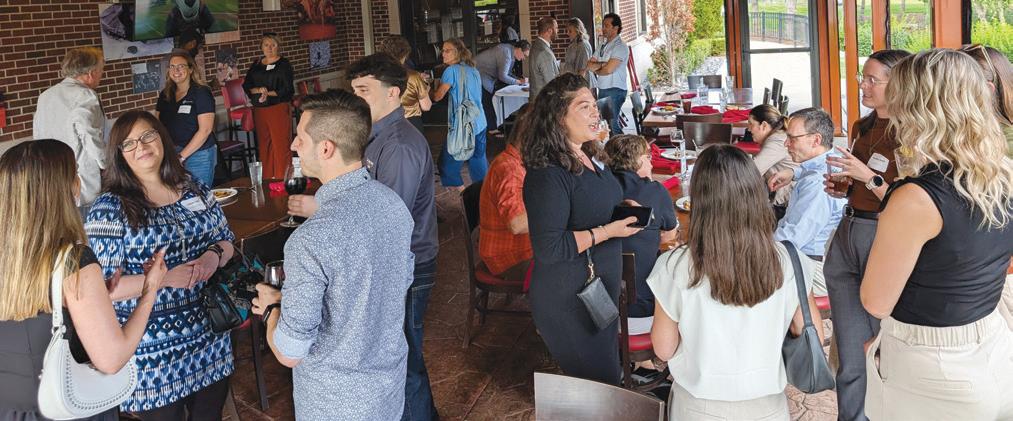
ByJulieI.Fershtman 18 DEPARTMENTS

The word “niche” carries several meanings, from describing a small recess in a wall to referring to a specialized segment of the market. The most powerful meaning, however, is the one that speaks to a sense of purpose, being “best fitted” for something. In this sense, a niche is not just a corner carved out but a place where a person’s skills, passions, and values align in a way that feels natural and sustaining.
We often speak of “finding our niche” as if each of us has a single destination waiting to be discovered. However, a life of meaning is not about narrowing toward one fixed point. It is about finding a space that allows us to grow, to give, and to remain true to who we are. Whatever direction we choose, the goal is the same: to bring the best version of ourselves forward and to be “best fitted” for what we take on.
Being “best fitted” goes beyond ability. Skills can be learned and refined, but a true niche is about alignment between one’s inner self and outer work. Being “best fitted” is not about landing a perfect job. It is about identifying where what we do is both meaningful to us and valuable to others. It is about making intentional choices about how we spend our time and energy. It is also about aligning our work, commitments, and relationships with our strengths, passions, and values rather than drifting into roles or paths by default. When we are best fitted, we thrive.
Too often, professionals stumble into careers without pausing to ask whether they have found their real fit. They may achieve outward success yet still feel restless or unfulfilled. The cost of being misfitted is subtle but profound. When our work does not align with who we are, it often shows up as restlessness, fatigue, or a nagging sense that something is missing. Success achieved without alignment can feel hollow, leaving us wondering why the milestone we chased did not bring the fulfillment we imagined. Over
By Sarah E. Kuchon
time, the strain of forcing ourselves into roles that do not fit can erode not only our energy but also our confidence, creativity, and joy.
Finding a role, a path, or even a way of living that aligns with our strengths, passions, and values is rarely accidental. It is not a matter of luck or waiting for the perfect opportunity but a process of discovery that unfolds through curiosity, reflection, and experimentation. Often, small, intentional steps are needed to illuminate the path. The following strategies can provide a framework for discovery, turning what might feel like aimless wandering into thoughtful exploration.
Begin by taking stock of the activities and roles that energize you. Ask yourself: What do I do well? What comes naturally to me? These are your strengths. Then ask: What do I enjoy doing so much that time seems to fly by when doing it? What projects leave me feeling creative and engaged? These are your passions. The place where your strengths and passions overlap is often the first clue toward a niche that feels authentic and meaningful.
Next, pay attention to how others respond to your contributions. Colleagues, friends, and clients often notice our gifts before we do. Ask yourself: Which of my skills or qualities are
Being “best fitted” is not about landing a perfect job. It is about identifying where what we do is both meaningful to us and valuable to others. It is about making intentional choices about how we spend our time and energy. It is also about aligning our work, commitments, and relationships with our strengths, passions, and values.
consistently recognized or appreciated? External perspectives and feedback can shine a light on strengths we might overlook, helping us see where our natural abilities meet the needs of the world around us.
Finding our niche is rarely a one-step decision or a single choice. It is something we discover through trial, reflection, and adjustment. Be willing to step outside your comfort zone and try new roles, projects, or experiences. Each experience gives you data. Ask yourself: What energizes me? What drains me? What feels aligned? What feels mismatched? Each experiment is a chance to test and explore what feels aligned and what does not.
A true niche honors our values and meets real needs. You may have passion and skill in an area, but if there is no demand, it will be difficult to build a career around it. On the other hand, working in an area of high demand that does not align with your values will leave you burned out and unfulfilled. e sweet spot lies

where authenticity meets opportunity, when your work reflects who you are and contributes something meaningful. To identify your values, start by considering what matters most to you. If the gap between your values and work is too wide, it might be time to seek a new role, organization, or field that offers a better fit. is can feel risky, but long-term fulfillment often requires the courage to step away, explore, and adjust.
For years, I felt like I was just moving through life. As a personal injury attorney, I had honed my abilities and achieved success, yet something felt incomplete. I wanted to serve my clients in a deeper, more holistic way, one that went beyond the confines of law. In pursuing that purpose, I explored counseling and yoga, developing new skills and discovering unexpected ways to connect with and serve my clients. While some thought I was taking a risky or unconventional path, to me it felt like the only one. In following my passions, I began to understand what it truly meant to be “best fitted.” At first glance, being an attorney, a counselor, and a yoga instructor seem like three very different paths, but for me they share deeper, meaningful connections. In essence, all three roles center on service, guidance, and human connection, using specialized knowledge to help people navigate challenges, grow, and find alignment in their lives. What once felt like separate callings have woven together into a life of purpose, where I discovered my niche of serving others with both skill and heart.
e search for a niche is really the search for ourselves. It is less about finding a fixed destination and more about cultivating awareness of where we are best suited to contribute, grow, and thrive. Whether we wander and explore or hone a particular path, the journey itself teaches us who we are and what matters most. In this way, the pursuit of a niche becomes not just a search for alignment but a practice of presence, reflection, and authenticity. rough small reflections, experiments, and observations, we can gain a clearer understanding of where we are “best fitted,” thereby finding our niche.

Sarah E. Kuchon is the president of the Oakland County Bar Association.


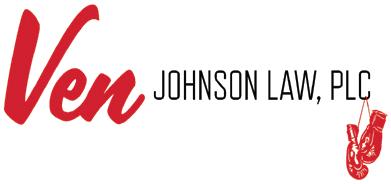
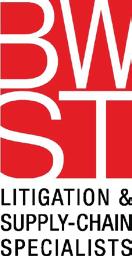












By Jennifer Quick

For many early-career attorneys, the transition from law school to legal practice can feel disorienting. The classroom gives way to courtrooms, clients, and deadlines. Law school may have laid the foundation, but it rarely provides the full set of tools needed to thrive in the profession from day one.
At the Oakland County Bar Association, we’ve heard these concerns directly. In recent one-on-one interviews with early-career members, the majority expressed a clear and pressing need for purposeful mentorship — especially in their first few years after graduation. Many want more guidance on the practical realities of practice, such as courtroom procedures, client interaction, and time management. They’re also seeking support in adjusting to the sharp contrast between law school’s academic structure and the demanding work-life balance of practice.
In response, the OCBA has made mentorship a central focus of our current efforts and long-term planning. It is a key initiative in our Strategic Action Plan, and we are using member feedback to shape the next generation of mentoring programs. As we continue developing those offerings, we’re proud to offer three impactful programs that support attorneys at every stage of their careers: the OCBA Mentor Program, the Pro Bono Mentor Match program (in partnership with Lakeshore Legal Aid), and the Inns of Court.
The OCBA Mentor Program is the cornerstone of our mentorship offerings. It pairs new or transitioning attorneys with experienced members of the bar in one-on-one relationships based on shared practice areas, interests, and goals. This flexible structure allows mentors and mentees to meet on their own schedules and focus on the issues most relevant to the mentee’s needs.
Participants often seek help with the dayto-day realities of practice: preparing for court, dealing with opposing counsel, managing a caseload, and even handling the emotional stress
that can come with the job.
Having someone to call during those “What do I do now?” moments is invaluable and can help an early-career attorney avoid common pitfalls or navigate office culture. It’s the kind of guidance they can’t get from a textbook.
Mentors also benefit from the program, gaining the opportunity to reflect on their own journeys and stay connected with the next generation of legal professionals.
In partnership with Lakeshore Legal Aid, the Pro Bono Mentor Match program offers new and transitioning attorneys a powerful combination: hands-on legal experience with expert guidance, all while providing vital services to underserved communities.
Through this program, volunteer attorneys take on pro bono cases under the supervision of seasoned attorneys who are experienced in landlord/tenant disputes, expungements, no-asset divorce cases, or debt-related matters. Not only do mentees build critical practical skills — they also make a meaningful impact through service.
The program provides a unique opportunity for the mentee, who doesn’t just shadow someone — they are responsible for a real case, with a real client, but they have a mentor to guide them through every step.
This program is particularly valuable for attorneys seeking to expand their experience into new practice areas or develop confidence in a supported environment. It also aligns with the OCBA’s commitment to access to justice and community service.
The OCBA’s Inns of Court program provides a group-based mentoring experience that fosters discussion, learning, and camaraderie across all levels of the profession — from law students to judges.
Each “Inn” is composed of a diverse group
of participants who meet monthly to discuss issues of professionalism, ethics, and practical problem-solving. Unlike one-on-one mentorship, the group format offers a broader range of perspectives and the chance to build lasting professional relationships.
“The Inns of Court program was invaluable in helping a newcomer to Oakland’s legal community meet amazing people from diverse backgrounds who were happy to share their wisdom with a young associate,” wrote Inns of Court associate member Ahmad El-Bkaily. “I gained practical experience presenting and responding to questions from sitting judges. I worked collaboratively with lawyers having decades more experience than I and was taken out to lunch by our team’s lead, a sitting judge. I cannot recommend the experience enough; nothing else gives you so much exposure in so little time.”
The Inns of Court model is rooted in tradition but remains one of the most modern and effective ways to build collegiality and professionalism in the legal field.
While early-career attorneys benefit from the knowledge and experience of their mentors, the value of mentorship extends both ways. Mentors often report that guiding others refreshes their own enthusiasm for the law and reconnects them with their core values.
A 2017 American Bar Association article notes that mentoring also helps mentors gain fresh perspectives, enhance their leadership skills, and expand their professional network.1
The feedback we’ve received from newer attorneys is shaping the OCBA’s vision for what mentorship should be. Our Strategic Action Plan includes a commitment to develop even stronger mentorship opportunities — programs that are responsive, flexible, and rooted in the real needs of our members.
As we continue to gather insight from members, we’re using that information to guide
the development of future mentorship initiatives. When those new programs are ready, we’ll announce them widely. In the meantime, we encourage attorneys at all stages of their careers to get involved in our existing programs, whether as a mentor, mentee, or both. ese are not just professional development opportunities — they are community-building efforts. Mentorship strengthens the legal profession by ensuring the next generation of attorneys is supported, prepared, and inspired.
I am grateful to every mentor and mentee who has stepped up to be part of this effort thus far, but there is more to be done.
We are always seeking both mentors and mentees for our current programs. Whether you’re looking to grow, give back, or both, there is a place for you in the OCBA’s mentorship community.
To learn more and apply, visit ocba.org/mentorprograms
Together, we can bridge the gap between education and practice — and build a stronger, more connected legal community in Oakland County.

Jennifer Quick is the executive director of the Oakland County Bar Association.
Footnote:
1. americanbar.org/news/abanews/publications/youraba/2017/april-2017/ mentoring-new-lawyers-yields-rewarding-experiences-for-both-part.
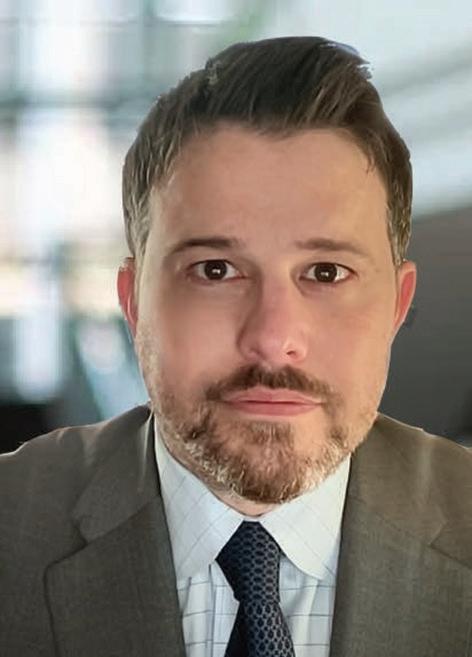
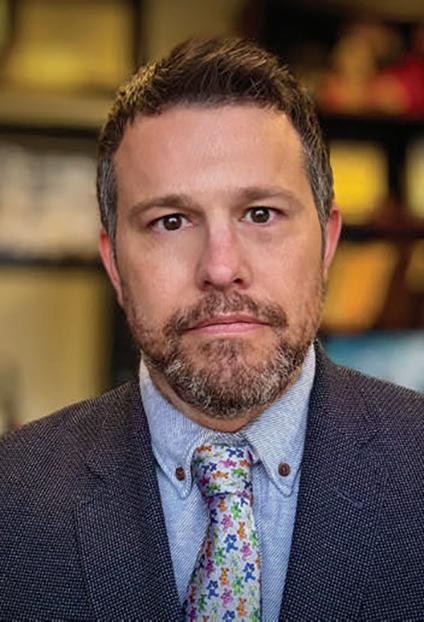



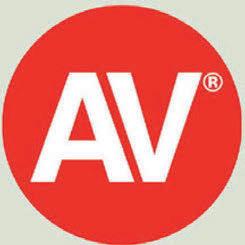
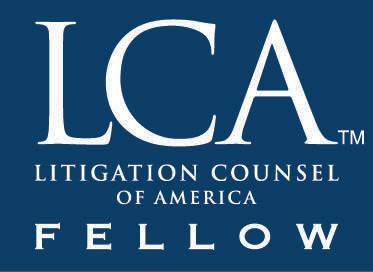

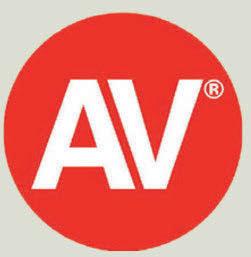



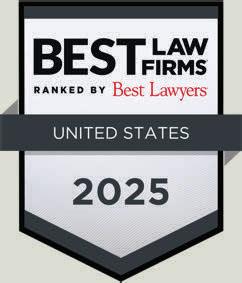
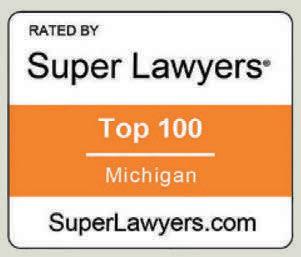
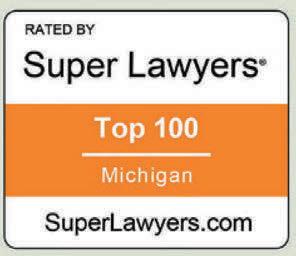



Please Note: Dates listed below were sent to the publisher on September 3, 2025. It is possible that some of the events listed below have since been altered. Please check ocba.org/events for the most up-to-date schedule of events.

Join us for a special fall Bar Night Out Mixer — an evening of connection, community, and celebration!
In partnership with the New Lawyers Committee’s annual Novemberfest, this lively event brings OCBA members together for a festive night featuring appetizers, a cash bar, and great company. Whether you’re reconnecting with colleagues or meeting new faces in the legal community, it’s the perfect way to unwind and expand your professional network. Don’t miss out — visit ocba.org/novemberfest for details and registration!


Don’t miss the OCBA’s signature event of the season — the Holiday Gala — taking place at the elegant Townsend Hotel in downtown Birmingham. Join fellow members and guests for an unforgettable evening featuring festive live music, an indulgent selection of gourmet cuisine, a premium top-shelf bar and fun mocktails, and a decadent dessert display. The celebration begins at 6 p.m. Reserve your spot today and take advantage of early-bird pricing, available through November 2, at ocba.org/gala.
This exclusive, invitation-only event for Oakland County Bar Foundation Fellows provides a festive setting in which to come together in support of the OCBF and celebrate these dedicated individuals. Enjoy delicious food and drinks and the camaraderie of friends and colleagues. OCBF Fellows can register now at ocba.org/ events. To learn more about the Fellows Program or to become a Fellow, visit ocba.org/fellows
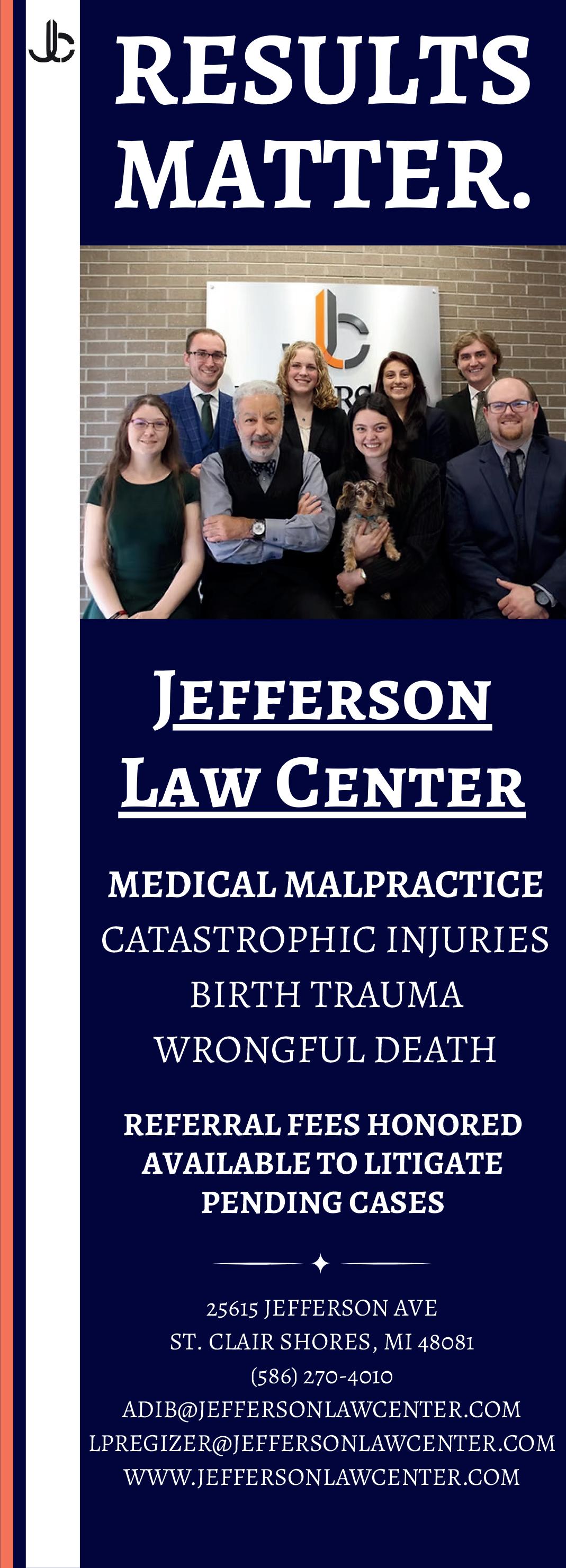






Wachler & Associates represents healthcare providers, suppliers, and other entities and individuals in Michigan and nationwide in all areas of health law including, but not limited to:
•Healthcare Corporate and Transactional Matters, including Contracts, Corporate For mation, Mergers, Sales/Acquisitions, and Joint Ventures
•Healthcare Corporate and Transactional Matters, including Contracts, Corporate For mation, Mergers, Sales/Acquisitions, and Joint Ventures
•Medicare, Medicaid, and Other Third-Party Payor Audits and Claim Denials
•Medicare, Medicaid, and Other Third-Party Payor Audits and Claim Denials
•Licensure, Staff Privilege, and Credentialing Matters
•Provider Contracts
•Licensure, Staff Privilege, and Credentialing Matters
S
•Billing and Reimbursement Issues
•Provider Contracts
•Billing and Reimbursement Issues
•Stark Law, Anti-Kickback Statute (AKS), and Fraud & Abuse Law Compliance
•Physician and Physician Group Issues
•Stark Law, Anti-Kickback Statute (AKS), and Fraud & Abuse Law Compliance
• Regulatory Compliance
•Physician and Physician Group Issues
•Corporate Practice of Medicine Issues
• Regulatory Compliance
•Provider Participation/Ter mination Matters
•Corporate Practice of Medicine Issues
•Provider Participation/Ter mination Matters
• Healthcare Litigation
• Healthcare Investigations
• Healthcare Litigation
•Civil and Criminal Healthcare Fraud
• Healthcare Investigations
•Civil and Criminal Healthcare Fraud
•Medicare and Medicaid Suspensions, Revocations, and Exclusions
•Medicare and Medicaid Suspensions, Revocations, and Exclusions
•HIPAA, HITECH, 42 CFR Part 2, and Other Privacy Law Compliance
•HIPAA, HITECH, 42 CFR Part 2, and Other Privacy Law Compliance

20 Litigation-Proofing Your Deal: M&A Disputes, Contract Pitfalls, and Pro Strategies for Business Lawyers (5:15 – 6:30 p.m.)
A seminar from the Professional Development Committee
Presenters: Matthew P. Allen, Miller, Canfield, Paddock and Stone, PLC; Jordan S. Bolton, Taft; Roger P.
Meyers, Bush Seyferth PLLC
Avoiding costly legal battles starts with smarter deal making. Join leading experts on Zoom for a high-impact seminar designed for business lawyers and deal professionals, where we’ll unpack hard-earned lessons from real M&A disputes and explore how to structure deals that withstand scrutiny. Learn how to identify and resolve common sticking points in contract negotiation, draft with litigation in mind, and build agreements that reduce risk and enhance enforceability. Whether you’re negotiating your next merger or refining a standard contract, this session will arm you with the insights and tactics you need to protect your clients — and your deals — from future disputes. Don’t just close deals — future-proof them. Register now.
9 Marketing Musts for Attorneys: Standing Out in a Sea of Suits (Noon – 1 p.m.)
A seminar from the Professional Development Committee
Presenter: John Reed, marketing and business development consultant and founder of Rain BDM
This Zoom seminar will cover using social media the right way to build recognition and your reputation as an expert, personal marketing and building your brand, what “content” means, what should be on your website, and more!
TBA Update on the State of Criminal Law 2025 — Part 2 (11:30 a.m. – 1 p.m.)
A seminar for criminal defense appointed counsel
Presenter: Alona Sharon, Alona Sharon PC
This Zoom seminar will provide an overview of the most recent published Michigan Court of Appeals cases with a focus on sentencing decisions. Join us for an in-depth discussion of hot topics, emerging issues, and practice
pointers in criminal law.
Worth 1.5 hours of criminal and juvenile training credit for appointed counsel
14 Litigation Mastery: Strategically Navigating Court Rules, Procedures, and Discovery (Noon – 1 p.m.)
A seminar from the Professional Development Committee
Presenters: Derek T. Howard, Doerr MacWilliams Howard, PLLC; Victoria B. King, Sixth Judicial Circuit Court; and Christopher Smith, Sixth Judicial Circuit Court
This Zoom seminar will provide valuable insights from experienced speakers who have served in both circuit courts and private practice. Drawing on their deep understanding of court operations and litigation strategy, they will examine the intricacies of court rules and highlight common pitfalls attorneys face. The program will also address frequent discovery challenges, offering practical solutions to help counsel avoid drawn-out discovery battles. Whether you’re a new attorney or a seasoned practitioner, this seminar will deliver actionable guidance to enhance your litigation skills.
20 Probation Violations: Legal Standards and Consequences (11:30 a.m. – 1 p.m.)
A seminar for criminal defense appointed counsel
Presenter: Caithraoine De Mott Grady, Michigan State Appellate Defender Office
This Zoom seminar will provide an in-depth examination of probation violations, focusing on the legal framework, procedures, and consequences associated with noncompliance. Participants will explore the conditions of probation, common types of violations (technical, substantive, and new criminal offenses), and the rights of probationers during violation hearings. The course also addresses the roles of probation officers, attorneys, and judges in the violation process, as well as the range of potential outcomes — from warnings and modifications to revocation and incarceration. Emphasis will be placed on balancing accountability with rehabilitation and on best practices for preventing violations through proactive supervision and support services.
Worth 1.5 hours of criminal and juvenile training credit for appointed counsel

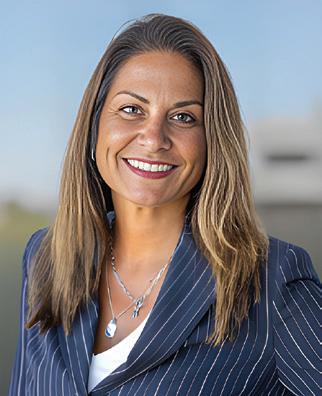
Dena Keller joins Beier Howlett after serving 27 years at the Macomb County Prosecutor’s Office. Her vast experience there consisted of prosecuting major drug crimes, homicide trials, felony criminal cases, and domestic violence cases, among many others. Keller’s unwavering commitment to professionalism, ethics, and collegiality makes her an invaluable and distinguished member of the Beier Howlett team.
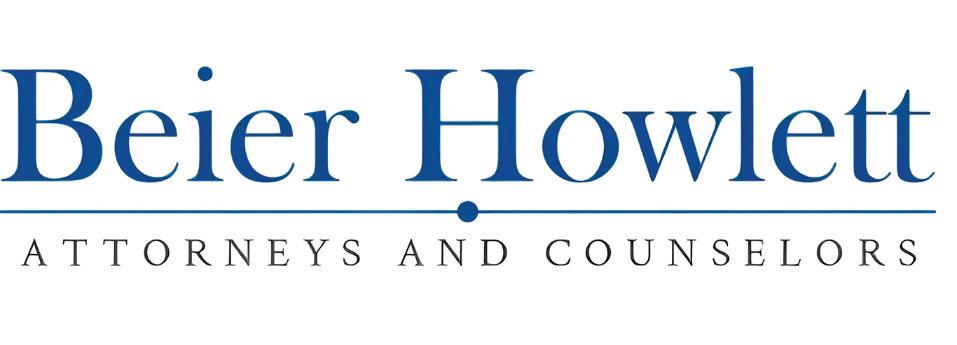
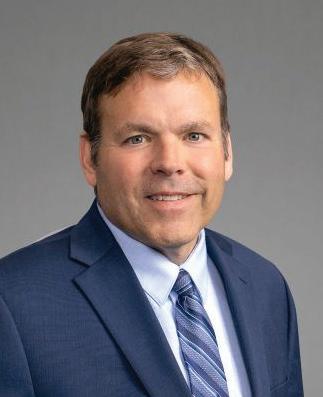
Deneweth, Vittiglio & Sassak is excited to announce the addition of construction attorney Scott D. Stoner. Stoner has over 28 years of experience representing design professionals, contractors, subcontractors, and owners in both litigation and business services. His work centers on delivering the best possible legal outcome for his clients to ensure that they make solid and informed business decisions. Throughout his career, Stoner has represented the construction industry in both state and federal courts in and outside the state of Michigan. He has lectured extensively on managing risk for design professionals and contractors.
Stoner has been named a Super Lawyer for consecutive years as a top-rated construction litigator. He earned Bachelor of Arts degrees in economics and political science from Indiana University in 1993 and his Juris Doctor at the University of Toledo College of Law in 1996.









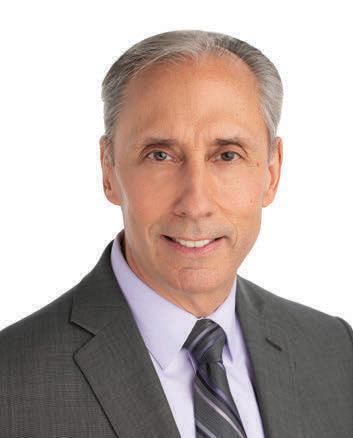







By Lisa M. Serra
2 + 2 = IT DEPENDS.
Astereotype about lawyers disliking math is widely held, including by lawyers themselves; however, many lawyers happen to have excellent math skills. In fact, there are various connections between the law and mathematics, and having a certain level of math competence enhances legal representation, including with regard to critical thinking, financial management, and client-specific needs.
The actual methodology of math — proving a fact, stating rules, and applying the rules to the facts to reach a conclusion — parallels the “IRAC” organizational scheme used in legal writing. As you may recall from your 1L year of law school, IRAC is an acronym that stands for “Issue, Rule, Application, Conclusion.” IRAC is taught to law students as an organizational structure for legal writing. Indeed, while lawyers are not solving the Riemann hypothesis, they do use inductive reasoning much like the mathematical thought process.
Below are various examples of how mathematics is commonly utilized in the practice of law.
The various math disciplines train lawyers to be logical and critical thinkers. Analytical thinking and logical reasoning are especially important in emotionally charged cases, courtroom negotiations, and witness examinations. Lawyers with strong analytical skills can better solve legal problems, make strategic decisions, and advocate for their clients.
Furthermore, analyzing and drafting documents and contracts also requires a strong analytical mind to ensure client interests are protected. A minor drafting error can have major mathematical (and financial) consequences. Drafting errors (or drafting without an understanding of math) can lead to money loss for clients. For example, a settlement is $500,000 at 5% interest over five years. Is that simple interest or compound interest? A lack of specificity in the settlement agreement can cost the client thousands of dollars. Another example: Suppose a client negotiating a settlement agrees to receive the payout by way of retirement assets in the future over dollars today. Due to the time value of money, a dollar today holds greater value than a dollar received in the future. A lawyer’s analysis should account for both the tax implications and the appropriate discount rate when evaluating future dollar amounts.
Lawyers routinely calculate various types of damages. For example, in a personal injury case, lawyers work to calculate compensatory damages (monetary awards intended to compensate a plaintiff for losses and injuries they suffered due to the defendant’s actions). They may use methods like the per diem or multiplier method
to assess damages. e per diem method assigns a daily rate (often based on daily earnings) and multiplies it by the number of days suffering occurs. e multiplier method multiplies special damages by a factor (usually 1.5 to 5) reflecting injury severity and impact. is involves totaling economic damages (like medical bills and lost wages) and applying a multiplier based on injury severity.
In business and contract disputes, lawyers calculate lost profits, lost earnings, and diminution in business value. Lost profits are calculated by subtracting the costs associated with lost sales from the lost sales revenue. Lost earnings are estimated by multiplying expected earnings by work-life expectancy, taking into account factors like age, sex, and education level. Diminution in business value involves comparing the business’s value before and after the wrongful act. In truth, while some types of damages are straightforward additions, others may require various mathematical methods to arrive at a reliable estimation of damages.
Several areas of law heavily rely on mathematical concepts and calculations. In family law, lawyers calculate child support, alimony, and property division, which often involves mathematical formulas and calculations. In tax law, financial documents and accounting are crucial. In estate planning, valuating assets and property, calculating the net worth of a person, and dividing the estate for beneficiaries are all commonplace. In criminal law, statistical analysis is essential for interpreting evidence. In medical malpractice, lawyers must calculate damages, including medical bills, lost wages, and pain and suffering. In business, corporate, and financial securities law, lawyers deal with various financial statements and accounts and investment principles, requiring them to understand math and accounting principles. In patent law, lawyers need to understand technical aspects of inventions and assess their novelty and inventiveness, often involving mathematical and logical reasoning. As you can see, lawyers need to be comfortable with basic arithmetic operations and potentially more-complex financial calculations.
Let’s look deeper at divorce and family law as an example. In divorce and family law cases, understanding financial records and planning for the future are tasks that will help your clients

protect their lifestyle and assets and make informed decisions throughout the legal process. Below are examples of divorce and family law topics commonly entwined with mathematics:
• Computation and analysis of the marital estate and separate property.
• Division of marital property.
• Calculation of child support and spousal support.
• Evaluation of property and business appraisals and valuations.
• Present-value calculations and amortization schedules.
• Estimation of tax implications.
• Organization, analysis, and interpretation of bank, financial, and retirement accounts.
• Review and analysis of individual and business tax returns.
• Interpretation of the financial implications of employment benefits and plans.
• Estimation of future budgets.
In divorce and family law matters, lawyers commonly work with financial experts in cases involving complex financial issues. ese experts can provide impartial analysis and testimony in complex cases to help the court understand more-difficult financial concepts like business valuations, damages, and lost profits.
Family law practitioners are frequently required to hire a financial expert to determine the marital interest of a privately held business. Effectively representing your divorcing client requires an understanding of multiple math and
financial concepts, such as the type of valuation approach (asset, market, or income?), how reasonable compensation is determined, what adjustments to income need to be made, and whether a discount should be applied based on the ownership structure and ability of the spouse to control the sale of the business, just to name a few.
Lastly, lawyers who own their own law firm or are managing partners at larger firms need strong math, financial, and accounting skills to handle budgeting, billing, expenses, and taxes. A lawyer with strong financial instincts will help run the firm most efficiently.
While lawyers are commonly known for their ability to read, write, and, of course, argue, they also commonly use some level of math in their careers daily. Just as mathematicians teach us the importance of being better analytical thinkers, this way of critical thinking is important for lawyers, too. We need to be able to see our cases logically to generate the best outcome for our clients. Critical thinking is crucial to analyzing evidence and making informed decisions that can ultimately determine the outcome or settlement of a case. In essence, critical thinking equips lawyers with the ability to reason effectively, make sound judgments, and navigate the complex legal landscape to provide effective representation for their clients.
As you can see, you cannot practice law without mathematics! While advanced math may not be required, strong analytical skills, logical reasoning, and basic arithmetic are crucial for success in the legal field.

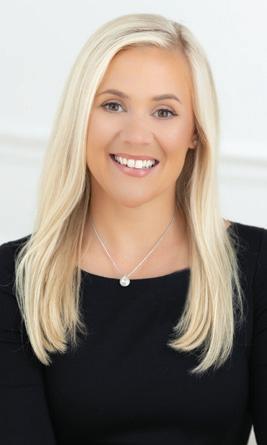
Lisa M. Serra is a partner at Lotus Legal Solutions. She focuses her practice on divorce and family law. Prior to joining Lotus, she spent 10 years working on securities-related matters. Serra’s background gives her a depth of expertise and an intuitive understanding of marital income and property division in her cases. Furthermore, she is a compassionate advocate who strives to ensure that her clients feel genuinely heard and understood throughout the legal process.

By Mark Klein
In the age of 24/7 digital access and personal branding, a student-athlete’s name, image, and likeness (NIL) has become one of their most valuable assets. While laws and league policies regarding the student-athletes’ right to publicity and use of their NIL were once tightly restrictive, recent litigation has begun to shift the balance of power back to the athletes. Now, student-athletes’ NIL rights are rapidly changing, and new laws and policies are allowing student-athletes to take control of their right to publicity.
As student-athletes are given more control over their right to publicity and as NIL compensation continues to change, so too will the legal issues that once dominated sports law. The expanding scope of publicity rights and the ever-mounting challenges to the traditional use of NIL mean that student-athletes and lawyers are entering uncharted territory. Now, student-athletes and colleges must understand the evolving landscape of sports law, and lawyers must have the proper guidance to know how to help them through it.
Athletes have long fought to protect their NIL from unauthorized use. J. Thomas McCarthy & Paul M. Anderson, Protection of the Athlete’s Identity: The Right of Publicity, Endorsements and Domain Names, 11 Marq. Sports L. Rev. 195 (2001). Many of these disputes have been over the use of an athlete’s NIL under certain circumstances without their permission and without compensation. In deciding many of these disputes, courts recognized that so long as the use of the athlete’s likeness is not for a “newsworthy” purpose, athletes have a right to publicity for which they can seek compensation. Haelan Laboratories, Inc. v. Topps Chewing Gum, Inc., 202 F.2d 866 (2d Cir. 1953). These decisions created what became a gateway for athletes of all levels to seek out specific protections for the use of their NIL.
In 2015, student-athlete NIL rights underwent a significant change following the court’s decision in the O’Bannon case, a class action lawsuit brought by former student-athletes whose likenesses were used by the National Collegiate Athletic Association (NCAA) without their permission. O’Bannon v. NCAA, 802 F.3d 1049 (9th Cir. 2015). In this case, the student-athletes argued that the NCAA was violating antitrust laws by using their NIL in products and marketing without compensating the student-athletes. The NCAA countered the student-athletes, arguing that compensating them would undermine amateurism — a principle it claimed was essential to protect in college sports.
The court disagreed with the NCAA, stating that the NCAA policies created rules that were too restrictive, causing anticompetitive effects that the NCAA could not justify through its claims of preserving amateurism in college sports. The fallout created a platform where the rights of student-athletes were expanded, ultimately allowing for student-athletes to receive other support beyond the cost of attendance as long as it was for academic purposes.
In 2021, the Alston case continued the trend of prioritizing student-athlete rights. NCAA v. Alston, 594 U.S. ___ (2021). Very similar to the O’Bannon case, Alston was also a class action antitrust challenge against the NCAA concerning issues with the types of payments student-athletes
could receive. Id. In this case, the majority took a narrow approach but sided with the studentathletes by expanding the types of payments allowed under the NCAA rules. However, in a concurring opinion, Justice Kavanaugh took the majority’s opinion a step further and harshly criticized and challenged the NCAA’s stance on amateurism, stating that NCAA restrictions on compensating student-athletes “would be flatly illegal in almost any other industry.” Id
Following the Alston decision, the NCAA took action and adopted new policies that permitted compensation of student-athletes for the use of their NIL. These cases have created a new platform that has since allowed student-athletes to speak out and further seek protection of their right to publicity — and have paved the way for new developments in this area of law.
O’Bannon and Alston have since opened the door for a variety of lawsuits brought on behalf of student-athletes seeking compensation for the use of their NIL. The most prominent of these cases is the House case, a class action lawsuit where the plaintiffs and the NCAA reached a settlement that allows schools to pay athletes directly through a revenue-sharing model. Final Settlement Approval, House v. NCAA, No. 4:20-cv-03919-CW (N.D. Cal. filed June 6, 2025). Recognizing the significance of the approval of the House settlement agreement, many current and former college athletes have followed the guidelines of the House case and have filed their own lawsuits seeking back pay for the use of their NIL, as well as covering many other issues regarding employment and gender equality.1 Further, the NCAA and colleges have taken action following the House decision by adopting new policies, procedures, and strategies to help student-athletes both protect their NIL and capitalize on its use.
Lawsuits challenging NIL and publicity rights are growing in frequency, a trend that shows no sign of slowing down. Given the recent openness of many courts toward protecting athletes’ rights to publicity and NIL, student-athletes and lawyers should see the recent changes and uptick in litigation as a potential opportunity to challenge current compensation rules and access benefits and compensation that were previously off-limits. Questions regarding compliance rules, newly allowed contracts, and endorsements continue to be posed, and answers continue to be murky. Student-athletes will require legal counsel to navigate contracts and potential litigation, and attorneys representing studentathletes must be on top of the latest legal developments and issues likely to arise to protect
their student-athlete clients’ NIL rights.
In practice, lawyers should take a two-pronged approach to helping their student-athlete clients adapt to the changing landscape of studentathlete NIL. These two prongs are (1) protecting the student-athlete by informing them of potential red flags and risks that may come with their NIL agreements, and (2) ensuring that student-athlete endorsements comply with current NCAA policies and any applicable state and federal laws.
Protecting the student-athlete and educating them on their legal responsibilities will be paramount in mitigating potential risks related to NIL contracts. This extends to making sure that the student-athlete’s rights are protected when they enter into new NIL contracts, but also confirming the student-athlete understands the agreement they are entering into and how they must comply with their contractual obligations as well as ensuring that they have the proper systems in place to manage and retain the wealth they receive from the use of their NIL.
Lawyers should ensure that the studentathlete is getting the best opportunities for the use of their NIL but also that the student-athlete understands the details of their NIL agreements and what is required of them. This may mean explaining to them the terms, the type of product or service they are promoting, or even what time they need to show up and for how long, or what type of social media posts they are required to post, what types of posts may be prohibited, and how often they have to post.2 More importantly, this also includes educating and informing your client on payment terms, exclusivity, licensing rules, deliverable requirements, the types of services to be rendered, and potential ramifications if their agreement is terminated. These are all important factors to take into consideration because, under some circumstances, there can be substantial consequences for noncompliance.
With the new House settlement allowing schools to pay student-athletes directly for their NIL, it may also involve informing studentathletes about what could happen if they choose to leave an NIL agreement with their school. A good example is the case of incoming University of California, Los Angeles, freshman quarterback Madden Iamaleava’s fallout with the University of Arkansas. Before committing to UCLA, Iamaleava previously committed to the University of Arkansas and received $200,000 shortly following his commitment. Tom Cavanaugh, Report: Madden Iamaleava’s Former School Seeking
NIL Reimbursement, Sports Illustrated (Apr. 24, 2025), https://www.si.com/college/ucla/football/ bruins-madden-iamaleava-arkansas-hunteryuracheck. Before ever playing a game at the University of Arkansas, Iamaleava had a change of heart and switched his commitment to UCLA, where he is now enrolled and attending. Following Iamaleava’s decision to switch his commitment, the University of Arkansas is now demanding that he repay the entirety of the $200,000 that he received from it, leading to many questions regarding how Iamaleava is going to repay the amount.
Many of the issues in NIL can be avoided by taking the proper steps to educate your client on the specifics of the agreement they are considering with new and existing partners. At a time when the landscape of both collegiate and professional NIL laws and rules is evolving, lawyers need to ensure that they themselves and their student-athlete clients stay informed regarding the current issues at play and the new opportunities that may now be available.
Endorsements and sponsorships allow studentathletes to capitalize on their NIL through proper means. However, lawyers must confirm that the student-athlete is not violating any potential NCAA policies or state laws when they enter into NIL agreements, as it could potentially lead to consequences that could otherwise leave them ineligible to play their sport.
Following the new standard set in the House case, student-athletes have been given more opportunities than ever before to seek out compensation from both their colleges and third parties. Previously, many athletes’ endorsements came from collectives sponsored by their colleges, funded by donors for the sole purpose of facilitating and connecting student-athletes to NIL opportunities. Under the collective model, it became apparent very quickly that the NCAA lacked control over the services student-athletes were providing in exchange for compensation and who was providing the compensation.
Shortly following the House decision, the NCAA gave full authority to regulate its bylaws regarding NIL to a regulatory commission known as the College Sports Commission (CSC). The goal of the CSC was both to monitor NIL agreements and to help student-athletes and their counsel navigate what may or may not be appropriate. Following its creation, the CSC implemented a new reporting program known as NIL Go, which gives student-athletes the ability to easily report their NIL agreements through the NIL Go portal.3 With the creation of NIL Go, new rules have since been established that now require student-athletes to report all third-party NIL agreements over $600 to the CSC, allowing

the CSC to determine whether the NIL agreement is proper and if the athlete can continue forward.
Under the CSC’s NIL Go framework, NIL agreements will receive more scrutiny to help protect the interests of the student-athletes and the NCAA. e CSC has indicated three key factors it will evaluate: (1) who is paying the athlete, (2) whether the purpose of the agreement is a valid business purpose, and (3) whether the compensation is in line with the services that are being provided. is allows student-athletes and their counsel to confirm that their endorsements are proper and allows student-athletes and attorneys to have a regulatory resource to help them work through the terms of potential agreements. rough this process, a student-athlete can also revise the terms without penalty if the agreement is not compliant with NCAA rules. However, if a student-athlete chooses to continue to pursue an agreement that has been otherwise denied by the CSC, they can be subject to penalties such as suspensions or other eligibility sanctions.
In addition to CSC requirements, studentathletes must also comply with state laws that may further limit agreements they can enter. In Michigan, our NIL laws restrict student-athletes from having endorsements or sponsorships with companies that would cause the university to breach their endorsement or sponsorship agreements (e.g., in Michigan, a student-athlete cannot seek out a sponsorship from Adidas that requires them to wear its apparel on the field if the player’s school is sponsored by Nike).
Between the CSC and state rules for endorsement compliance, it appears that the NCAA is taking a stance that it will continue to try to regulate how student-athletes can seek compensation. It is expected that the NCAA will continue to enforce and develop its new rules to align with its goals. Attorneys for student-athletes must be mindful of the current guidelines and must understand that the regulatory landscape of NIL endorsements is rapidly changing, and
because of this, they must take extra precautions when they help facilitate their student-athlete clients’ endorsements.
As student-athletes’ publicity and NIL rights evolve, these rules are expected to keep changing — creating new challenges and opportunities. With this, conflicts are likely to continue to develop, as are opportunities for student-athletes to maximize their success. Recently, President Trump has issued an executive order on studentathlete NIL that largely creates similar restrictions on third-party endorsement agreements to those that were imposed by the CSC under NIL Go. Following the signing, President Trump has continued to criticize the current NIL landscape and has indicated that he would like to continue to work with Congress to bring reforms to college sports.4
President Trump has stated that he would like to limit how student-athletes can be paid and address potential issues with NIL and gender equality and has indicated that he would like the secretary of labor to clarify how NIL payments affect student-athletes’ employment status and the attorney general and Federal Trade Commission to investigate relevant antitrust laws. Based on these statements, it has become very clear that the president is interested in providing guidance on college sports issues. For that reason, it is possible that in the near future there could be even further changes to NIL laws that could also provide stability to this area of law. As more NIL cases are litigated, attorneys will play a vital role in helping student-athletes navigate new complexities that will reshape student-athletes’ relationships with their colleges and their sponsors.
e shifting legal landscape surrounding NIL is not a passing trend; it is a foundational change to how student-athletes can protect their rights and seek compensation. As issues relating to
athletes’ rights to publicity and NIL continue to be contested, many student-athletes will need to seek proper counsel to help them maximize their rights. Further, as more restrictions continue to be lifted in this area of law, more student-athletes will seek to capitalize on new opportunities to monetize their NIL. For that reason, studentathletes and colleges must have an understanding of the evolving litigation landscape that is sports NIL law, and lawyers must be there to guide them through it.
• O’Bannon v. NCAA, 802 F.3d 1049 (9th Cir. 2015): held that NCAA restrictions on student-athlete compensation violated antitrust law.
• NCAA v. Alston, 594 U.S. ___ (2021): held that student-athletes can seek compensation beyond the traditional cost of attendance. Also see J. Kavanaugh’s concurring opinion.
• House v. NCAA, No. 4:20-cv-03919-CW (N.D. Cal.): a recently settled case that allows institutions to compensate studentathletes for their NIL directly.
• Michigan Name, Image, and Likeness Act, MCL § 390.1731 et seq.
• Exec. Order No. 14322, 3 C.F.R. 90 (2025): President Trump’s recent “Saving College Sports” executive order regarding NIL.

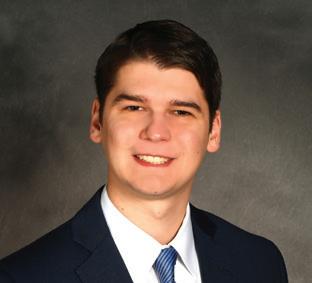
Mark Klein is an associate attorney at Goss Law Group, where his practice focuses on business law, sports law, and intellectual property litigation.
Footnotes:
1. See Maxwell Goss & Mark Klein, From the Locker Room to the Courtroom: The Battle Over StudentAthlete NIL Rights, Mich. Litig. J. (2025).
2. Sara Coello, What is NIL in college sports? How do athlete deals work?, ESPN (Mar. 24, 2025), https://www. espn.com/college-sports/story/_/id/41040485/whatnil-college-sports-how-do-athlete-deals-work.
3. Ross Dellenger, What is NIL Go, and why is it the latest subject of debate among college sports leaders?, Yahoo Sports (Jun. 13, 2025), https://sports.yahoo. com/college-sports/article/what-is-nil-go-and-why-isit-the-latest-subject-of-debate-among-college-sportsleaders-120028561.html.
4. Lexi Lonas Cochran, Trump dives into the turbulent waters of pay for college athletes, The Hill (Aug 6, 2025), https://thehill.com/homenews/education/ 5436918-college-athletes-pay-nil-compensationtrump-ncaa-football.
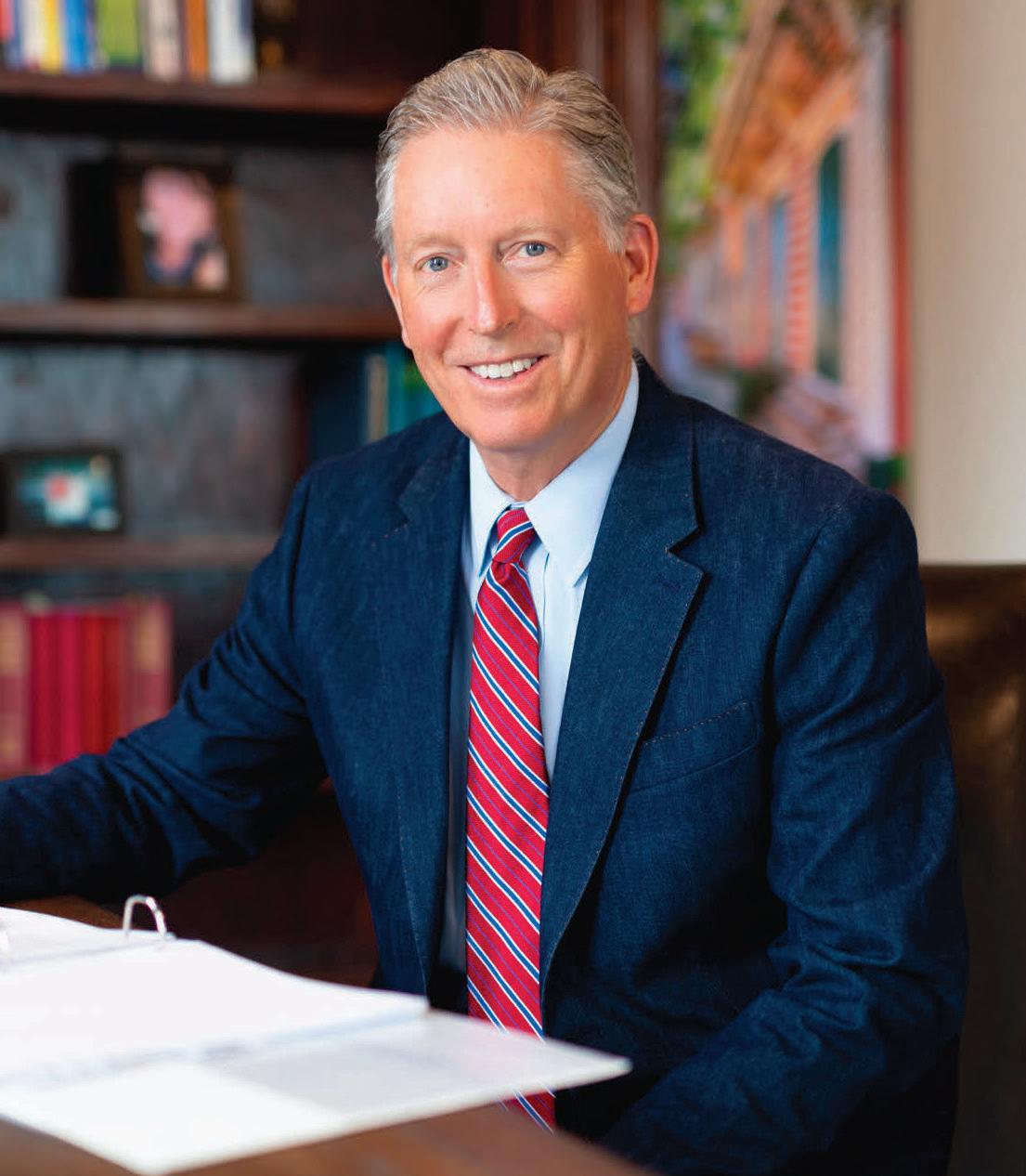
Judge Switalski’s 30+ years of judicial experience allows him to unlock solutions for some of the toughest legal cases mediated in Metro Detroit.
ADR with Judge Switalski places skill, empathy, knowledge of the courtroom and integrity at the center of your case.




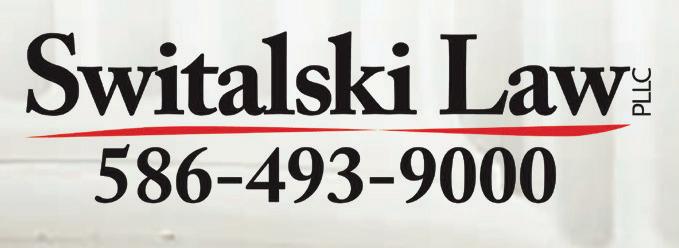
• Wrongful discharge cases, including breach of employment contract, discrimination, harassment and retaliation
• Non-payment of compensation disputes, including commission, bonus and incentive compensation arrangements, and FLSA violations
• Enforcement of equity award agreements and minority shareholder rights
• Defending against mobility-killing non-compete and non-solicitation contracts
Separation agreement reviews and severance negotiations
• Drafting employment contracts
• HR counseling, defending against government investigations
• Serious workplace injury and death cases





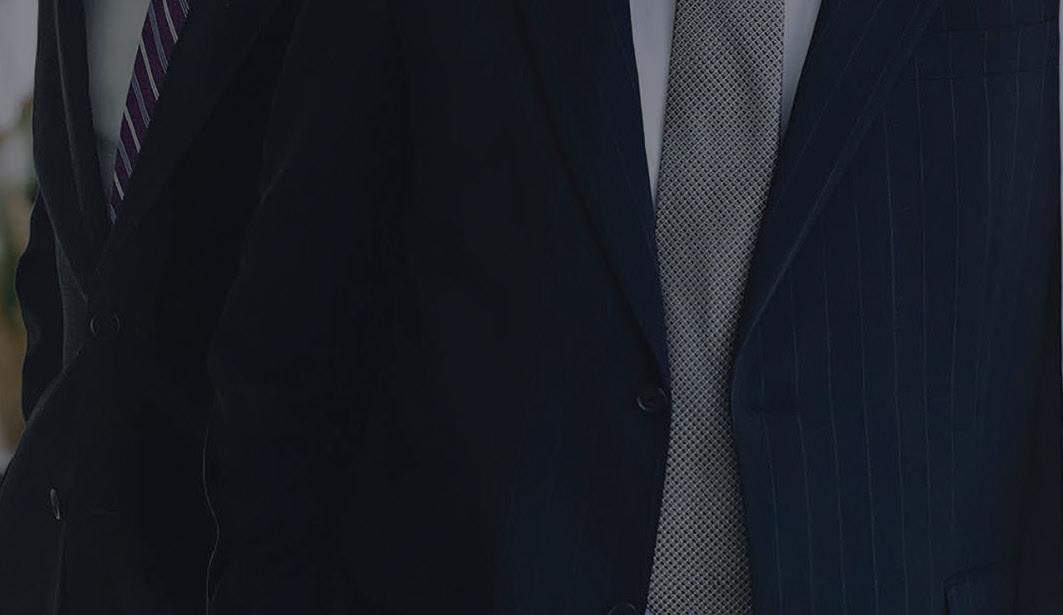
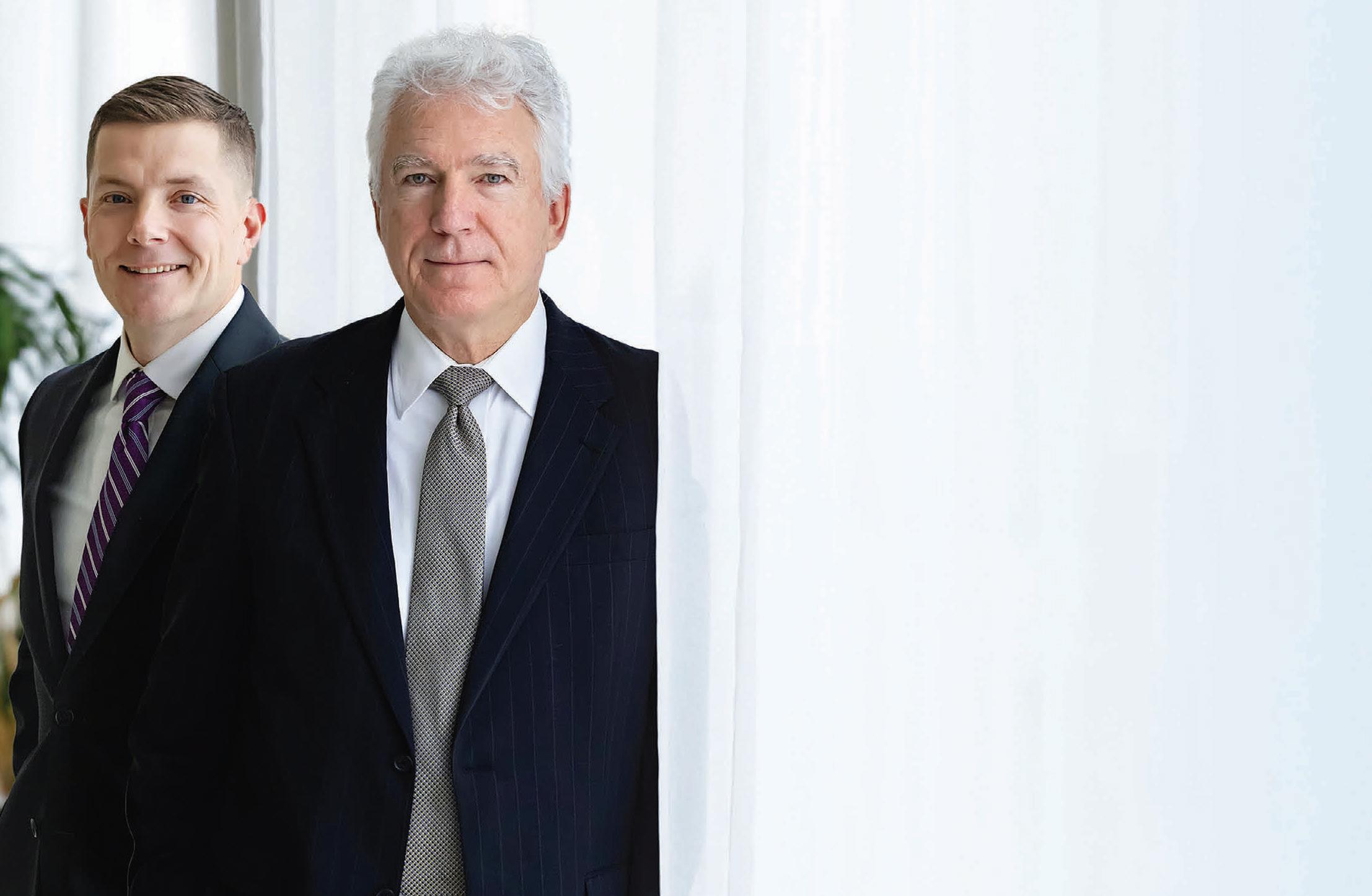





By Jordan Zuppke
“A smooth sea never made a skilled sailor.”
—Proverb, author unknown
Every attorney, especially those who practice criminal law, will encounter difficult clients. It’s the nature of our work. The people who find themselves entangled in the criminal justice system are often battling addiction, mental illness, and sometimes just a general mistrust of everyone around them, including their own lawyer. Effective advocacy becomes uniquely challenging when it feels like you’re fighting both the government and the very person you’re trying to help.
But not all hope is lost. I urge my fellow defense attorneys to view withdrawing from representation as a last resort. No matter how challenging the relationship becomes, our ethical and constitutional obligations remain unchanged:
• Zealous advocacy.
• Effective communication.
• Protection of our clients’ rights.
Criminal defense comes with its own particular pressures. Here are a few strategies that have helped me remain effective and compassionate, even in the most frustrating circumstances.
We can all agree that you should not file a motion that is legally baseless or unsupported by the facts. In practice, things aren’t always so black-and-white, especially when you’re dealing with clients who’ve already fired multiple attorneys and are determined to see a specific issue litigated.
Let’s face it: “Jailhouse lawyers” are a dime a dozen. Clients often have cut-and-paste briefs that are passed around in the jail, and they demand that you argue motions based on their “fine legal research.” When a client is convinced that they know the law, sure, you can argue with them until you’re blue in the face, but it doesn’t matter. Rather than spinning your wheels, file their motion and make the argument, then keep it moving.
In some of these cases, I’ve had clients draft the motion themselves, attach the case law that they believe applies, and sign the filings personally. I then file it on their behalf, not mine. I don’t sign it. I don’t take ownership of it. I simply act as the vessel through which their argument reaches the court. Other times, I am provided with case law and will use that research to draft pleadings. While I will double-check the case citations, I do not spend hours upon hours perfecting their filing.
By doing this, you accomplish two things:
1. You protect yourself by making a clear record that this is not your motion; and
2. You build trust with your client by respecting their desire to be heard.
If you want to tip off the judge that this is not your motion, try using the following language:
“This motion is filed at the specific request of Defendant.”
Once you’re in court, be transparent. Explicitly tell the judge, “This is not my motion, but I am here to assist my client in making their record.”
Argue the motion using the client’s own words, ask them what points they want emphasized, or read from a script that they provide.

Nine times out of 10, the motion is denied. But the client feels heard, the court sees you as cooperative, and your appellate record is clean. By validating the client’s desire to be heard, you are doing more than just making a record — you are breaking through their isolation. Being the one person who listens without judgment can change everything for a client. Reminding them that they are not alone and that you are their voice matters. I recently lost a murder case, meaning that my client will be spending the rest of his natural life behind bars, but you know what he said to me at the end of it all? “ ank you.” I was the 10th lawyer, but I was the first who filed the motion he wanted argued from the outset of the case.
Last year, I tried a crazy operating-whileintoxicated case that I knew I was going to lose. My client had an outlandish theory about a blood draw. In essence, he wanted to argue that the police planted alcohol in his blood. It was simply unbelievable. On top of that, he was unlikeable and downright difficult to work with. He insisted on testifying, demanded absurd witnesses be called, and filed a barrage of pro se motions. None of it made any sense, but what he really wanted was his day in court. So I gave it to him. After a demanding three-day jury trial, my client was found guilty. While I made sure not to present any theory unsupported by the evidence, I wasn’t the person driving this ship. What mattered most here was making the record. Prior to calling witnesses, I asked for the jury to be removed and made it clear:
• at the client was ignoring my advice;
• at he was rejecting a favorable plea;
• at he was testifying against sound strategy; and
• at I offered alternative trial defenses which he did not want to pursue.
e record was preserved at every step along the way, and when the inevitable conviction came, we had a clean appeal. Remember, it helps to place into the record that the client is acting against your advice and/or trial strategy to avoid an ineffective assistance claim later.
Agatha Christie’s character Miss Marple said it best: “Good advice is almost certain to be ignored, but that’s no reason for not giving it.” Just because you gave good advice doesn’t mean it needs to be followed. Make note of everything you do as challenges arise when dealing with unpredictable clients.
For instance, there are those who agree to a legal strategy or plea agreement and later reverse course without warning. Sometimes this can occur at the podium without any notice whatsoever. ere are also some clients who refuse to communicate prior to the scheduled hearing.
In all cases, detailed notes, written confirmations, and a clear record of client interactions, client decisions, and the advice given by the attorney can serve as a crucial safeguard. Such documentation ensures that the attorney’s conduct and competence are preserved in the event of a later claim, showing that any negative outcome was the result of the client’s own choices, not attorney negligence.
Text messages are great pieces of evidence, especially if the client has on “read receipts.” If nothing else, almost all platforms have some indication that your messages are delivered. Do not delete your message history. Better yet, if something is crucial to the case, print out a screenshot and place it in your file for safekeeping.
Defending difficult clients is a thankless job. It tests your patience, your professionalism, and sometimes even your faith in the justice system. However, these are precisely the clients for
whom the Constitution was designed. While they are not always grateful, or reasonable, and may seem determined to sabotage their own case, it is our duty to defend them. If you’re not willing to stand next to them, then who will?
Every motion you file, every objection you make, every record you preserve is more than a procedural act; it’s a lifeline. It’s a signal to your client that, even when the world has written them off, there is at least one person in their corner who will fight for their voice to be heard. You’re not just protecting them from the government — you’re also protecting the integrity of the process, and that matters, even when the verdict doesn’t go your way.
e work requires a rare blend of tenacity and humility. You must have the strength to keep advocating, even when the outcome seems inevitable. Respect your client’s autonomy, even when you disagree with their decisions. Document everything, not to shield yourself from blame, but to preserve the truth of what really happened in that courtroom and behind the scenes.
In the end, this is not about winning every case. It’s about honoring the oath we took to provide zealous, ethical representation to every client, regardless of how challenging they may be. It’s about showing up, standing firm, and ensuring that no matter how rough the waters get, our clients are never left to navigate them alone. In the unpredictable seas of criminal defense, it’s the roughest voyages that produce the mostseasoned sailors.

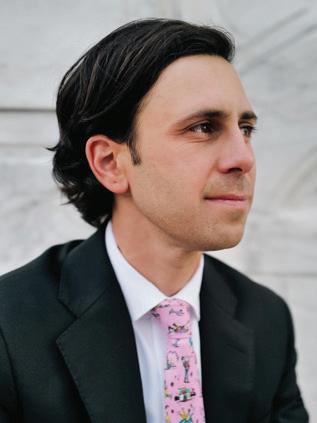
Jordan Zuppke is the co-founder of Zupac Law and widely recognized as the “Skateboard Lawyer,” a moniker earned from spending more than half his life riding at a professional level. e discipline, resilience, and balance demanded by the sport has shaped not only his character but also his approach to the practice of law. Skateboarding taught him that progress often comes through patience, persistence, and the willingness to get back up after every fall. ese qualities translate seamlessly into the courtroom, and his skills have served him well in his criminal defense practice, where he has taken on some of the most challenging court-appointed cases, often stepping in after clients have red multiple attorneys. Zuppke views these cases as chances to apply the same grit and focus that once propelled him through competitive skateboarding to now guide clients through the most turbulent chapters of their lives.

By Julie I. Fershtman
Succeeding in the practice of law is tough. Lawyers in private practice have a never-ending requirement to keep business coming in and meet billable hour requirements. Competition for good clients is fierce. Clients and prospective clients demand — and deserve — efficiency from their lawyers. Wouldn’t it be great to add some fun to your daily practice by expanding your areas of practice to include one or more unique niche areas that match your personal interests and passions, such as matters involving your favorite hobby or sport or a subject that totally fascinates you?
You can make it happen. Adding a niche practice area creates a “win-win-win” situation for everyone. Clients “win” with the efficiency you offer given your specialized knowledge of the industry along with your extra enthusiasm for the subject matter. Industries “win” when dedicated lawyers go beyond the routine level of work and handle niche matters that are sometimes at the forefront of cutting-edge legal developments. Lawyers “win” when we receive valuable opportunities to handle legal matters that blend our lifelong interests with our practices. Finding a niche area of practice takes creative thinking — almost any area of interest or any industry has a need for some type of legal service. Niche law practices have included cannabis law, firearm law, election law, surrogacy law, lemon (auto) law, animal law, and social media law. Developing a niche area of practice takes careful planning, marketing, and patience. This article shares my own experience of developing a niche practice area and offers suggestions and mistakes to avoid as well as practical marketing tips that can work for almost any budget.
For 38 years, I have primarily been a business and insurance litigator. Decades ago, when I was a young lawyer, I sought a way to blend part of my practice with something that I found personally meaningful — horses. Back then, before the internet, I started a niche practice area known as “equine law.” Equine law encompasses a wide variety of matters ranging from land use to sales fraud, administrative law to tax law, and can involve contract drafting, syndications, and liability litigation. Focusing on a few matters, I forged my own path through trial and error. From the start, everyone expected failure. Even a well-respected law practice management guru, whom I’d admired, told me to give it up. In my earliest stages of planning, I approached him at an American Bar Association convention and asked what he thought of my niche plan. “Horse-related law from the Detroit area?” he asked, with a smirk. “You’ll starve.” I disagreed. From my own research and involvement, I knew that the equine industry was, and is, large. More recently, for example, the American Horse Council reported that the industry has a $177 billion economic impact in the U.S.1 “People and organizations within this industry — such as businesses, farms, horse owners, associations, and trainers — will need legal counsel eventually,” I thought. Back then, very few lawyers served it. Proudly, I can share that I proved the practice management expert wrong. I found a way to make it work. Now, decades after I started, the work has been everything I
envisioned. It’s challenging but definitely fun. I’ve been pro hac vice counsel in 21 jurisdictions, handled several appeals, tried cases in four states, and consulted with lawyers around the country. Clients have been especially grateful that they’ve hired a lawyer who understands their interests, shares their passion for what they do, and wants to protect their industry into the future.
As you begin developing and promoting a niche area of practice, please keep in mind some of the mistakes I made and some options for avoiding or overcoming them:
• Casting too wide a net through your legal marketing, thereby attracting prospective clients who cannot hire you. For decades, I wrote at least one new article each month on a variety of legal subjects within my niche and offered them to newsletters and industry magazines all over the country in
exchange for a byline explaining my law practice. Some high-circulation magazines even hired me to write legal articles. The publicity was outstanding, as no other lawyer was doing this. Thanks to very little competition, my writings generated a strong out-of-state following, with most assuming (wrongly) that I could handle cases and draft contracts everywhere. Few people could afford to hire local counsel to work in some capacity with me. Before websites and search engines helped people find local lawyers, my solution to recapture lost business was to combine years of articles into equine law resource books. Then, while the monthly article series continued in full force, bylines described my practice but added a 1-800 number where a call center took book orders. People otherwise unwilling or unable to hire me on their out-of-state matters ordered copies. The books were profitable, and many thousands sold. Nowadays, lawyers with niche practices have a much easier time. In an effort to provide the same benefit of ed-



ucating industries they want to serve and becoming known within the industries, lawyers can apply their creativity and writing skills to blogs and websites, which can explain geographic restrictions and control client expectations.
• Ignoring demographics. When marketing a niche practice area, you’ll search for ways to become known by the clients you want to serve. As you target your markets, consider the demographics. Years ago, I wrongly assumed that everyone with a horse was a good prospective client for equine law matters. I was wrong. People in the equine industry do not hire lawyers. The wide net I’ve cast through marketing to everyone has resulted in an engagement rate (i.e., the percentage of those who actually hire me out of all those who inquire) that ranges from a mere 1% to 3%, despite a sizable volume of inquiries each week. Put another way, close to 99% of all calls and emails will never materialize. Statistics like that are anything but















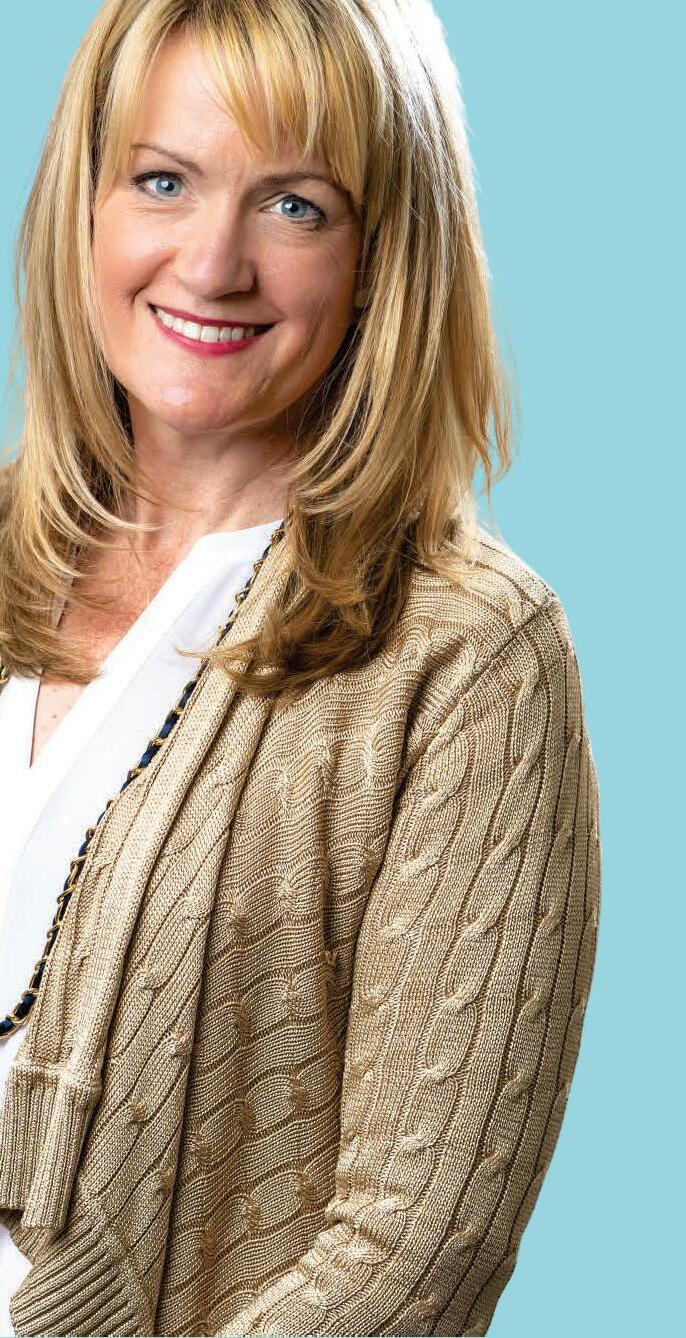
encouraging. As I see it, however, the occasional work within the niche area makes it all worthwhile. Also, people in the 97% to 99% have been known to return with other legal matters later or refer others. Lawyers can improve their engagement rates by focusing their marketing, and sometimes their niches, on segments within the industry with demographics more likely to generate business. If that is important to you, you can find the demographics by studying magazines and websites that people within the industry read, as advertisers have done the work for you already. Magazine and banner ads that include fractional jets, investments, and high-end cars send a clear message of the likely readership.
• Using bylines and biographies that turn o prospective clients. In an effort to develop credibility in the industry when I was starting my niche, I thought my bio needed to boast of my horse show wins. Unfortunately, that idea backfired. at is, the byline at the end of my earliest articles mentioned a state championship I won and the breed of horse I rode. at failed because I misjudged how the industry would respond; I forgot that it was, and remains, sharply segmented and composed of people dedicated to different horse breeds and disciplines, with each believing theirs to be the best. Horse enthusiasts involved with other breeds and disciplines wrote me off as irrelevant. A friend who was one of the industry’s most prolific book writers alerted me to the problem. I “neutralized” my bio, showing no affiliation with or partiality to any particular breed of horse or discipline. For those creating niche practices, consider the segmented nature of your industries when your marketing efforts include photos and bios.
• Not “vetting” speaking engagements. e promise of a packed room for an in-person presentation plus extensive publicity from the convention can be huge incentives to accept speaking opportunities. Take caution before signing on, as your time is valuable, and you want to maximize out-of-office opportunities to their fullest. Conventions may not tell you that they provide concurrent sessions, forcing you to compete for an audience. Before accepting speaking opportunities, I’ve learned to ask questions and make no assumptions. Find out who else will be sharing your time slot and the topics
they’re covering. Ask for a reassignment to a slot with few, or no, competing speakers. Ask about projected attendance numbers.
Compared to the time when I developed my niche practice area, marketing has become substantially easier and cheaper with potentially greater impact. Here are some practical marketing ideas for niche marketing:
Websites and web domains. Your law practice’s general website, certainly, can include your niche, but consider adding a second website devoted exclusively to the niche. Consider owning multiple domain names. For years, I’ve owned about a dozen that are relevant to my niche, such as equinelaw.net, equinelaw.info, equinelaw. co, equine.legal, and more. e websites are inexpensive, do-it-yourself sites through Network Solutions. Still, they keep the niche visible, track viewer statistics, and help keep a high Google ranking.
Blogs and e-newsletters. Providing easy-to-understand educational material on legal subjects, as mentioned above, can be a great way to serve your industry and become well known within it. ere’s no downside, as the mere process of writing a law-related article forces you to study legal developments closely and write about them in an understandable, succinct manner. Over a decade ago, my firm established an equine law blog, equinelawblog. com, which presents material on a wide variety of topics, such as defamation, contracts, liability, horse breeding, boarding, insurance, sales disputes, veterinary malpractice, and land use. Viewership has been high.
Social media pages. Consider creating a social media page devoted to your niche. Populate it with links to your blog entries and articles.
Speaking engagements. Speaking engagements, in my opinion, provide the greatest opportunities to meet prospective clients, share developments, improve communication skills, and gain insights into the industries you aim to serve. Lawyers with niche practices make great speakers, as their enthusiasm shows through. In my opinion, the most valuable part of a speaking engagement is the chance to listen to questions posed by your audience. eir questions provide valuable insights into what matters within your industry at the time. eir questions will generate ideas for popular articles or blog posts.
Articles. As you develop your niche, learn what publications people within that industry read. Try developing a presence in those publications with an occasional article or advertisement. Advertising is easy, but lawyers with limited marketing budgets might consider offering the publications an article on an interesting legal subject. e larger publications will buy your article.
Association membership. Find out what associations people within your chosen industry belong to. Join the groups. rough their publications, e-blasts, conferences, educational programs, social gatherings, and websites, industry associations will help grow your niche practice by keeping you informed of developments, allowing you to meet the people you hope to serve, and providing unparalleled networking and referral opportunities. Over time, you may find yourself involved in speaking engagements, committee work, articles, and leadership.
Mark Twain is often credited with saying: “Find a job you enjoy doing, and you will never have to work a day in your life.” For lawyers like me with niche areas of practice, these words ring true. rough a common interest in your niche, people will seek you out. ey will connect with you. ey will discover skills you offer as well as your other areas of practice. ey will remember you. Over time, you may discover your niche is anything but small, specific, and compartmentalized — it can actually open the door to fantastic opportunities and growth that you never expected.

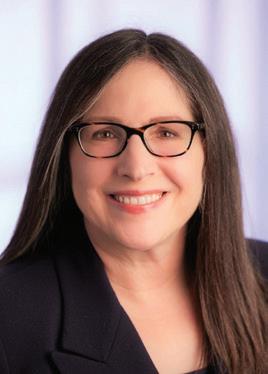
Julie I. Fershtman is a shareholder with Foster Swift Collins & Smith PC in South eld, where her practice focuses on business litigation, insurance law, and equine law. She is a past president of the State Bar of Michigan (2011-12) and past OCBA director and o cer. She is the immediate past vice president of the Michigan State Bar Foundation. Dedicated to writing and speaking in her niche, she has written four books — two published by the American Bar Association — and 425 articles. Her speaking engagements span 29 states.
Footnote:
1. American Horse Council 2023 Economic Impact Study, horsecouncil.org/economic-impact-study

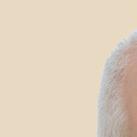




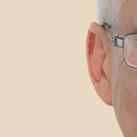













Some may recall that this month’s title was the tagline for the successful television show e X-Files. For those unfamiliar with the show, Gillian Anderson plays a straitlaced FBI realist who is partnered with David Duchovny, a conspiracy theorist buttonholed in a basement office by the FBI. Together, they investigate various paranormal incidents while combating opponents — terrestrials and otherwise — who seek to prevent them from revealing the hidden world.
e X-Files and its conspiracy theorist protagonist, Agent Mulder, have resonated with me recently, as I have received several questions about court record integrity. A common theme with these queries boils down to a belief that the court or an agent of the court has altered, edited, or deleted the video record to remove critical statements and/or essential evidence. Sixth Circuit Court administration receives some version of this complaint at least once a month.
I have investigated multiple complaints within this category. In some instances, through either an equipment malfunction (extremely rare), a clerk error in failing to start the record when the court session begins (equally rare), or an attorney or party beginning to speak before the equipment begins to record (somewhat more common, but rarely critical to the proceeding), some portion of the record is missing. I have seen judges restart proceedings when they observe one of these problems to ensure that an accurate record exists. When, unbeknownst to the court and parties, some portion of the record is lost or otherwise unpreserved, counsel may stipulate to the record as provided at MCR 7.210(B)(2). In short, procedures exist to address the very rare instances when the record is not preserved.
Unfortunately, the monthly concerns that court users present to court administration do not fall within the categories outlined above. Instead, the common refrain becomes that an attorney or party made a record and that some bad actor, perhaps the court or some agent of the opposing party, has deleted that argument or evidence from the record. When we review
By Richard Lynch
the record, it proceeds without interruption, as confirmed by the running time/date log that tracks proceedings by the day, hour, minute, and second. When the person with the complaint is presented with this information, the typical response becomes self-serving: “Of course there is not a gap; they don’t want to show that they have altered the record.”
To some extent, this article may seem reminiscent of my August 2025 article. If you sense a bit of déjà vu, first, thank you for reading! Second, I request your grace to continue. For while I previously discussed recording devices and the creation of alternative records that conflict with the official record, I now confront the issue of allegations that the court, either directly or through a third party, has altered the official record to assist or punish a party.
As a court administrator, I work diligently with our judges, clerks, and staff to ensure record integrity. Maintaining and building public trust and confidence in the official record serves a foundational role in supporting the purpose and validity of the courts. us, when people present unsupported allegations that the official record has been altered or that the court has altered the record to deprive a party of its rights or to favor one party over another, I, and I hope you, begin to bristle at the suggestion.
Attorneys bear an ethical obligation of candor toward the tribunal.1 is same ethical obligation does not apply to parties. is distinction appears when one views the concerns presented to court administration. When considering these complaints and some of the fantastic allegations supporting them, one wonders whether the person believes the story or if they are merely comfortable spinning a self-serving yarn. More critically, one wonders if any thought is given to the damage that such stories wreak on the legal system as they work to establish a reality that supports their vision of the case.
As I mentioned previously, in rare instances, there may be a record error that our technological staff cannot fix — for example, if the system was not turned on, it cannot record. Occasionally,
the courthouse experiences a power surge that requires that the system be reset. However, as all power shuts down during a power surge, everyone knows when this occurs and recognizes the need to reset the equipment. Indeed, many judges make a record of the event to preserve the reason for the interruption on the record. When this occurs, all participants share the service interruption, so it becomes a collective experience made memorable by its rarity.
e court serves society as a bedrock institution. ose of us who choose this select form of public service recognize the stakes associated with our vocation. We do not manufacture Legos or sell tea sets. Everyone in the court plays an integral role in fulfilling the vision of justice proposed by our republic’s Founding Fathers. With that in mind, staff, be they a court clerk, judicial secretary, data technology staff person, or judge, know the importance of the court record and their role in preserving it. us, the unverified and unverifiable claim that a court record was somehow altered is not only troubling, as it undermines the integrity of the court, but insulting, as it disparages the integrity of all who serve the court.
In the end, this article boils down to a simple thesis: “All lies lead to the truth.” While societal trust in governing institutions may be declining, if you hear someone suggest that they lost a motion, a hearing, or the case because the court altered the record, please step up and defend the institution that you have sworn an oath to uphold and dedicate your life to support. Ask for evidence. Critically examine the information offered. Don’t just grouse for the sake of complaining. ank you for your support of the justice system.

Richard Lynch is the court administrator for the Oakland County Circuit Court.
Footnote: 1. Michigan Rules of Professional Conduct (MRPC) 3.3.

By Justin M. Gonzales
November holds Veterans Day; this year, it is Tuesday, November 11. e OCBA Veterans Law Committee has been a strong supporter of local veterans and Oakland County veterans treatment courts. When I reflect on why our committee is so committed to helping other veterans, I remember the Army Values. e Army Values are loyalty, duty, respect, selfless service, honor, integrity, and personal courage (LDRSHIP). While these values are directed at soldiers in the U.S. Army, I believe every attorney could benefit from the Army Values. I have listed below the Army Values in the hope that on this Veterans Day, we can learn from the Army and grow as attorneys.
“Bear true faith and allegiance to the U.S. Constitution, the Army, your unit and other Soldiers. Bearing true faith and allegiance is a matter of believing in and devoting yourself to something or someone. A loyal Soldier is one who supports the leadership and stands up for fellow Soldiers.”
We as attorneys swear to support the Constitution of the United States. A loyal attorney will keep faith with their clients and always work toward a beneficial resolution for their client. Stand firm with your clients, even in the face of adversity.
“Fulfill your obligations. Doing your duty means more than carrying out your assigned tasks. Duty means being able to accomplish tasks as part of a team.”
As an attorney, you have a moral obligation and responsibility to represent your client to the best of your ability. e Lawyer’s Oath states, in part, “I will maintain the confidence and preserve inviolate the secrets of my client.”
“Treat people as they should be treated. In the
Soldier’s Code, we pledge to ‘treat others with dignity and respect while expecting others to do the same.’ Respect is what allows us to appreciate the best in other people. Respect is trusting that all people have done their jobs and fulfilled their duty.”
Respect is a fundamental value that encompasses acknowledging the worth and dignity of others. An attorney is the literal representative of their client; if the attorney is disrespectful, the client will suffer. e Lawyer’s Oath states, “I will maintain the respect due to courts of justice and judicial officers.”
“Put the welfare of the nation, the Army and your subordinates before your own. Selfless service is larger than just one person. In serving your country, you are doing your duty loyally without thought of recognition or gain.”
We as attorneys often help those in need with little gain or recognition. e OCBA Veterans Law Committee represents dozens of veterans every week in veterans treatment courts without any financial benefit. Selfless service is key to a successful community.
“Live up to Army values. e nation’s highest military award is e Medal of Honor. is award goes to Soldiers who make honor a matter of daily living — Soldiers who develop the habit of being honorable, and solidify that habit with every value choice they make.”
One of the most cherished values to an attorney should be their honor. You should keep your honor in everything you do. Once your honor is lost, opposing counsel will not work with you, judges will not believe your arguments, clients will find different representation.
“Do what’s right, legally and morally. … It requires that you do and say nothing that deceives others. As your integrity grows, so does the
trust others place in you. e more choices you make based on integrity, the more this highly prized value will affect your relationships with family and friends, and, finally, the fundamental acceptance of yourself.”
Similar to honor, integrity is fundamental for every attorney. An attorney should be honest, treat others with respect, and foster trust with those they interact with.
“Face fear, danger or adversity (physical or moral). … Facing moral fear or adversity may be a long, slow process of continuing forward on the right path, especially if taking those actions is not popular with others. You can build your personal courage by daily standing up for and acting upon the things that you know are honorable.”
Personal courage for an attorney can mean standing up for those who can’t defend themselves, knowing fully that their service will come with potential backlash. Defending your clients’ constitutional rights in the face of adversity is not only standing up for your client but standing up for the community as a whole. is Veterans Day, let us reflect on the values of the Army as we incorporate them into our daily vocation.

Justin Gonzales has been an attorney since June 2022. He has worked as a public defender, assistant prosecutor, and associate attorney. Currently, he is working for Cardelli Lanfear PC as an associate attorney. Gonzales has years of experience working with the 41B District’s veterans court and is currently the pro bono defense attorney for the 45th District Court Veterans Treatment Court. Other a liations of his include council member in the SBM Insurance and Indemnity Law Section, director of new lawyers for the OCBA, and chair of the OCBA Veterans Law Committee.
Anderson
Cohen
Grant
8/21/2025
Grant
8/4/2025
Matis
Matis
8/25/2025
Matis
2024-206501-NI
Joseph Rosenberg v. Deborah Pierson-Grossi
2023-203838-NO
Ami Bhatt v. Amir Siddiqui
2024-291783-FC
People v. Whittaker
2025-292707-FH
People v. Graves
2019-174017-NH
Michele Barnes v. Michael Jacobs
2025-292368-FH
People v. Hopkins
2024-291881-FC
People v. Lowe
Matthews
8/7/2025
O'Brien
O'Brien
2024-205179-NH
Marilyn Sanders v. Troy Gastroenterology
2023-203844-NH
Jill McGillis v. Cranberry
Park Milford
2022-197162-NH
Richard Davis v. Ascension Providence Hospital
Paul Davis
Richard Lewandowski
Jan Rubinstein
Gary Blumberg
Allison Krueger
Cecilia Quirindongo
Baunsoe
Andre Hage
Gregory Mortimore
Marc Berlin
Paul Dwaihy
Jason Desantis
Duane Johnson
Christopher George
Jeffrey Schwartz
Personal Injury/Auto Negligence
Ct. 1 CSC 1st Degree, Cts. 2-4 CSC 2nd Degree
Cts. 1-2 CSC 4th Degree, Ct. 3 Children - Contributing to Delinquency
Medical Malpractice
Ct. 1 Home Inv. 1st, Cts. 2, 4, 6, 8, 10 Weap. FF, Ct. 3 Weap. - FA - Disch., Ct. 5 Impris., Ct. 7 AWIM, Ct. 9 Aslt. w/ DW
Brian McKeen
Amy Schlotterer
Stanley Feldman
Steve Cheolas
Ronald Bowling
Paul Dwaihy
8/26/2025
Rowe
Warren
8/4/2025
AlexanderVisiting
Judge
PottsVisiting Judge
2024-206783-NI
Danielle Hurt v. Janice
Mills
2024-291576-FH
People v. Dodson
2023-201188-NF
Corey Lemarbe v. Clint
David Work
2025-292267-FC
People v. Pettway
8/5/2025
Ronayne
KrauseVisiting Judge
2024-291262-FH
People v. Wells
Maurice Davis
Renee Townsend
Alec D'Annunzio
Morris Friedman
Paul Valentino
Gregory LaVoy
Shellbe Sanborn
Jordan Zuppke
Qamar Stamos
Jacob Stamell

Those who follow athletics, the stock market, or any other institution which relies on predictive analysis know for sure that even an informed and humble expert cannot predict the future with any degree of certainty. Prudent leaders and institutions, however, don’t succumb to the lack of control felt from being unable to predict the future by ignoring the critical obligation to have a mission and plan for the (uncertain) future. Without a North Star to guide them, organizations run the risk of wasting good talent, hard work, and inspiration.
While not every company, nonprofit, or government adopts a formal mission statement, most successful organizations have clear guiding principles. For example, the preamble to our United States Constitution starts with the eminently noble principle to find a “more perfect union.”1 The preamble to the Michigan Constitution reads differently but exudes an aura of deep purpose:
By Andrew M. Harris
“ We, the people of the State of Michigan, grateful to Almighty God for the blessings of freedom, and earnestly desiring to secure these blessings undiminished to ourselves and our posterity, do ordain and establish this constitution.”2
Statements of purpose can only go so far if they are limited to written words (they are even more limited if the words are not prominently displayed nor repeated). To be effective, mission statements have to be ingrained in an institution’s culture through frequent reminders and behaviors reflective of the purpose.
As a passionate sports fan, I find myself drawn to coaches and programs that not only have a powerful slogan but exude a healthy culture day in and day out. A sterling example is the current leadership of our beloved Detroit Tigers, led by manager A.J. Hinch. Not only is he a former player (having spent part of his playing career in Detroit) and

The Oakland County Bar Foundation’s mission is to ensure access to justice and an understanding of the law in our community. It is dedicated to:
Improving and facilitating the administration of justice in Oakland County and throughout the state of Michigan;
Ensuring to the fullest extent possible that legal services are made available to all members of the public;
Promoting legal research and the study of law as well as the diffusion of legal knowledge;
Promoting the continuing legal education of lawyers and judges; and
Educating the public as to their legal rights and obligations, and fostering and maintaining the honor and integrity of the legal profession.
If you know an organization that could use assistance to pursue these goals within Oakland County, please refer them to ocba.org/ocbfgrants, where they can find information about applying for a grant from the foundation.
highly intelligent (having earned a degree in psychology from Stanford University), but he stresses honesty with his players and engages with them on a personal level. I remember, too, what Hinch said when the team lost out on securing third baseman Alex Bregman, a star free-agent player, during the offseason. Part of his remarks mentioned the team’s desire to have players who “want to be here [in Detroit].” This comment underscored the value and benefit of what is already in place with the team’s culture. In other words, the team is not going to sacrifice its existing mission or lose energy for a sustained period because someone else did not want to be part of the Tigers’ winning culture.

Having a clear and conscious purpose in our work within the legal field is also critically important. While we can certainly do good work and function professionally without a mission statement, knowing what we want to achieve can make achievement more likely and our tasks more fulfilling.
At my firm, I have the benefit of working under the umbrella of our 28 fundamentals created during a firm retreat a few years ago, noble principles like “act with integrity,” “make a difference,” “invest in relationships,” and “check your ego at the door,” which attorneys
and staff are immersed in frequently through placards, weekly emails, and comments on each week’s fundamental before every staff meeting. ese fundamentals have served as a basis for a healthy and professional law firm environment.
e primary purpose (pun intended!) of this article is to tailor the positive principles of mission statements to the Oakland County Bar Foundation’s mission. is mission, imbedded in every article the OCBF president is honored to author for LACHES, is to “ensure access to justice and an understanding of the law in our community.” e OCBF’s mission is the antithesis of something gathering dust on a shelf. Instead, it is the bedrock of noble service within a noble profession using the law to make progress and improve lives within our community.
e OCBF lives its mission in many ways. For instance, in the past year, it accomplished the following through the work of its staff, its
volunteer board of trustees, and its five active subcommittees.
• Raising a net amount of almost $225,000 during our annual Signature Event at Orchard Lake Country Club and through other fundraising endeavors.
• Most importantly, distributing almost $170,000 to 16 different grant recipients who, through their work, fulfill the OCBF’s mission. ese institutions help our fellow residents with critical legal needs relating to issues such as immigration and recovery from domestic violence and sexual abuse.
• Recruiting 31 new Fellows (the Fellows are a unique group of supporters, limited to 10% of State Bar members within Oakland County, who must be nominated by another Fellow) to continue the
decades-long work of the OCBF into the future.
While finding the time to reflect upon your purpose (both as an individual and working within a legal organization) can be a challenge in our busy and demanding lives, it is proven to make a positive impact. So, take that time, deliberate, and figure out what you’re about — be that person who looks and acts like they “want to be here.”

Andrew M. Harris is a shareholder with Maddin Hauser Roth & Heller P.C. in South eld, Michigan, where his practice includes business litigation and commercial real estate. Harris is also a licensed civil mediator. He lives in Birmingham with his wife (Ti any), two teenage sons (Roger and Russell), and two dogs (Maizey and Blue).
Footnotes:
1. (U.S. 1776).
2. Mich. Const. Preamble (1963).
e mission of the Oakland County Bar Association is to serve the professional needs of our members, enhance the justice system, and ensure the delivery of quality legal services to the public. We fulfill our mission through our 29 committees, regular networking events, and numerous educational programs for both OCBA members and the public. We work hand in hand with the OCBA volunteer board directors and members, and we partner closely with the courts.
Below are recent examples of the OCBA at work in service to the bar and to the community.
seminars are available to watch on demand through December 31 at ocba.org/ondemand
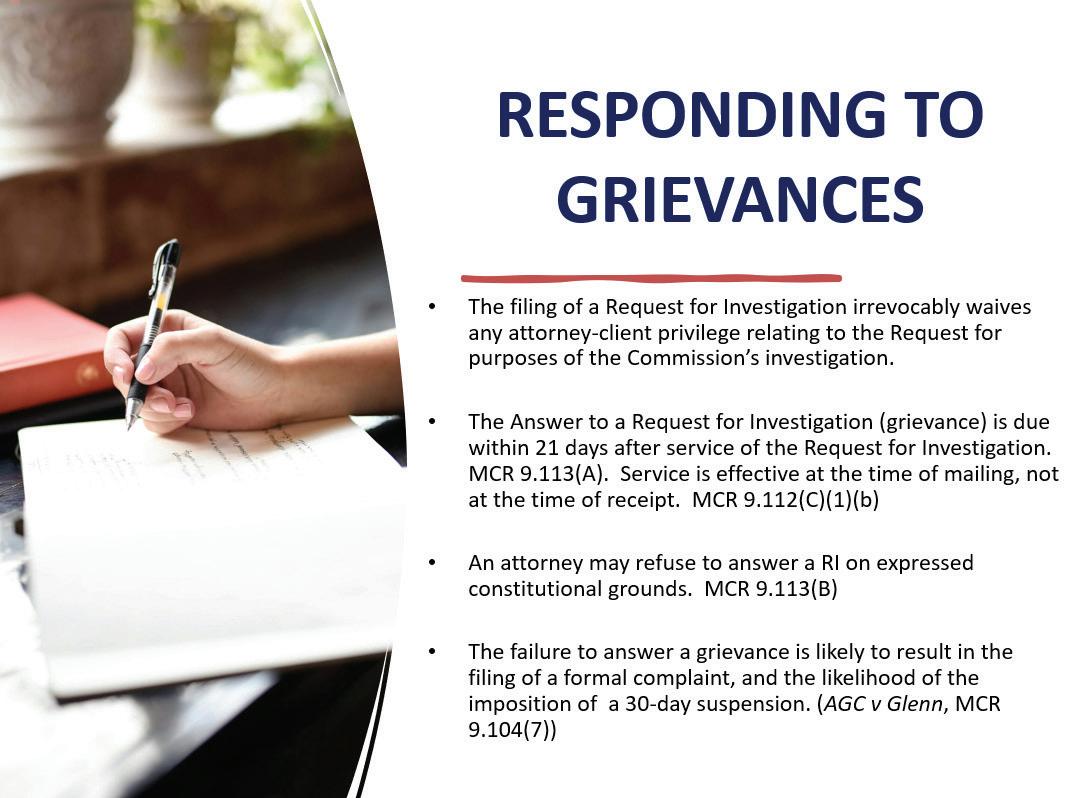
On August 21, the Professional Development Committee hosted the first of two seminars focused on attorney ethics and the disciplinary process. Nineteen attendees participated live in the first session, titled “Understanding the Attorney Disciplinary Process in Michigan.” Cooley Law School professor Martha D. Moore, Esq., discussed how attorney discipline is administered in the state, including the roles and responsibilities of the Michigan Attorney Grievance Commission and the Michigan Attorney Discipline Board. She also outlined the steps involved in the disciplinary process and highlighted key procedural considerations for attorneys. e follow-up seminar, “A Solo Practitioner’s and Small Firm’s Guide to Avoiding Attorney Grievances,” was held September 9, drawing more than a dozen participants. Both seminars aimed to help legal professionals better understand the disciplinary system and promote ethical practices and awareness of professional responsibility requirements in Michigan. e
e Professional Development Committee has restructured to better serve OCBA members by offering engaging professional development seminars and events designed to enhance legal practice.
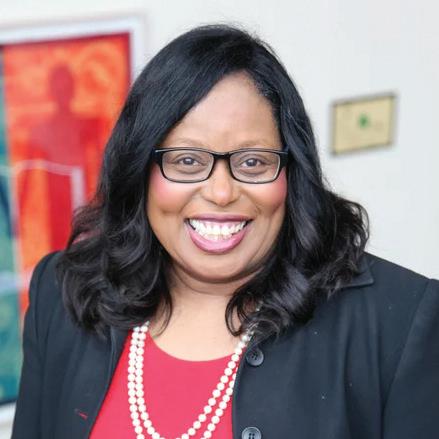
On August 27, the committee kicked off the 2025-26 bar year by reviewing planned updates for at least 10 seminars scheduled so far. Additional programs may be added as the committee continues to review proposals submitted by various OCBA committees.
e committee’s mission is to support the educational and professional development of OCBA members by providing information and training that help them practice proficiently, competently, professionally, and ethically throughout their careers.
If you are interested in serving on this committee and contributing to its mission, contact Shanay Cuthrell at scuthrell@ocba.org
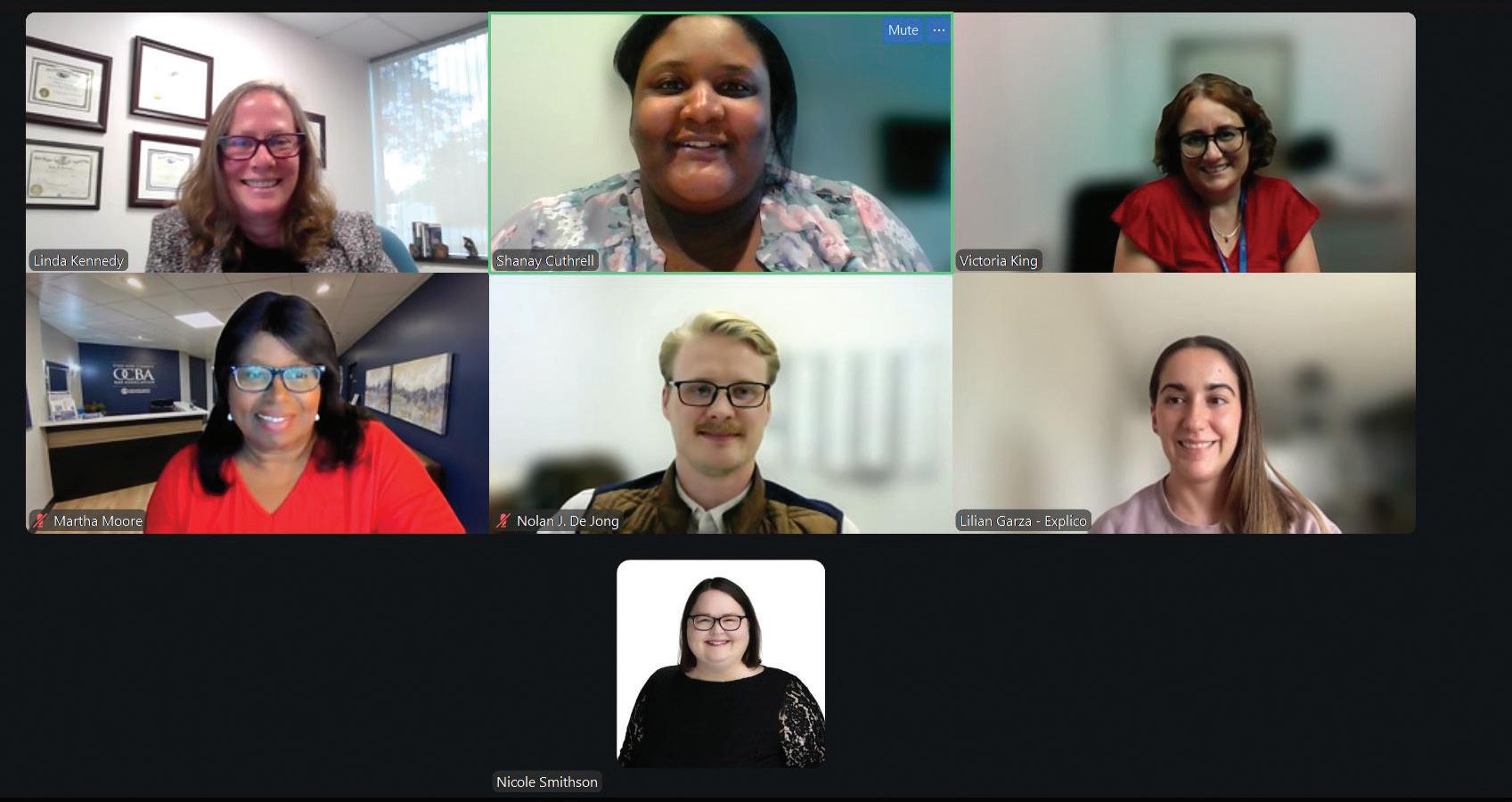
e Diversity, Equity and Inclusion Committee held its first meeting of the 2025-26 bar year on August 27. During the meeting, members outlined plans for the year ahead, including upcoming programs and collaborative initiatives focused on advancing diversity, equity, and inclusion within the legal community. e committee also reviewed nominations for the two OCBA Diversity in the Legal Profession Awards — the Leon Hubbard Community Service Award and the Michael K. Lee Memorial Award — which recognize individuals and organizations that demonstrate a sustained commitment to DEI efforts. Both awards were presented at the annual Taste of Diversity event held October 16.
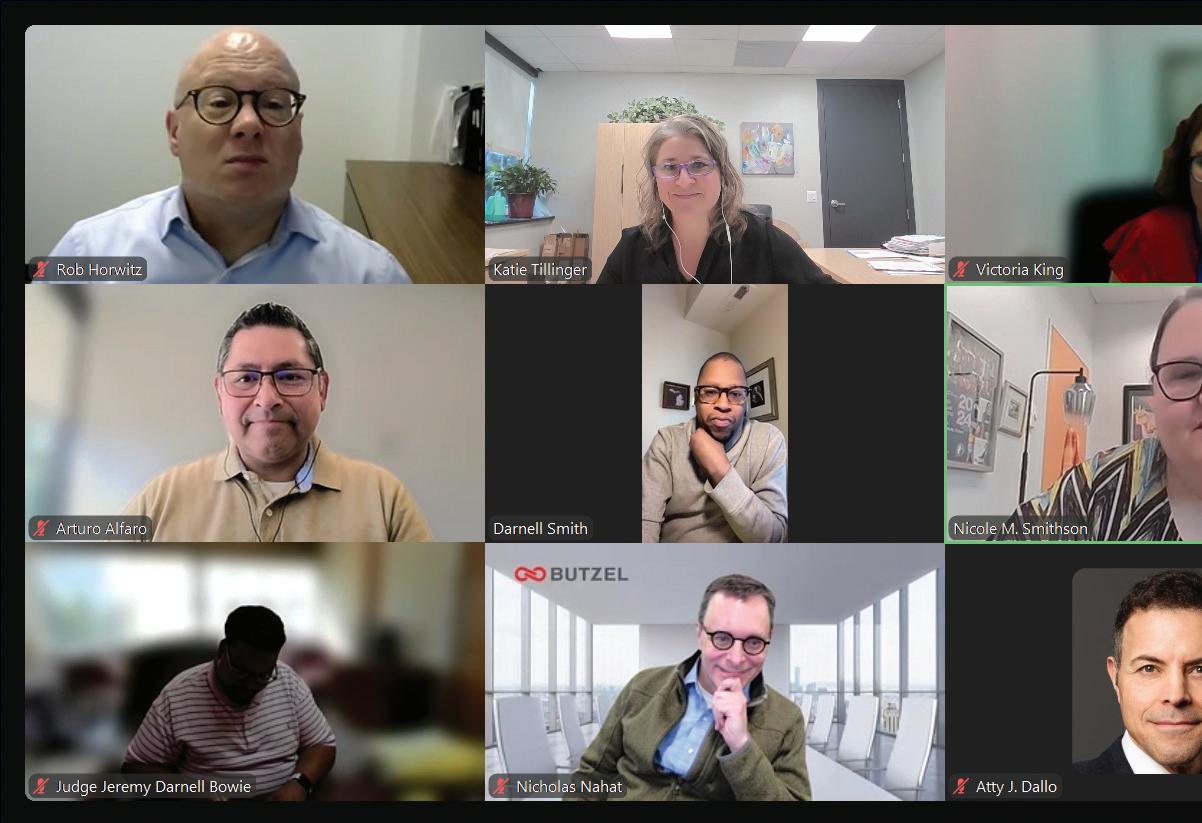
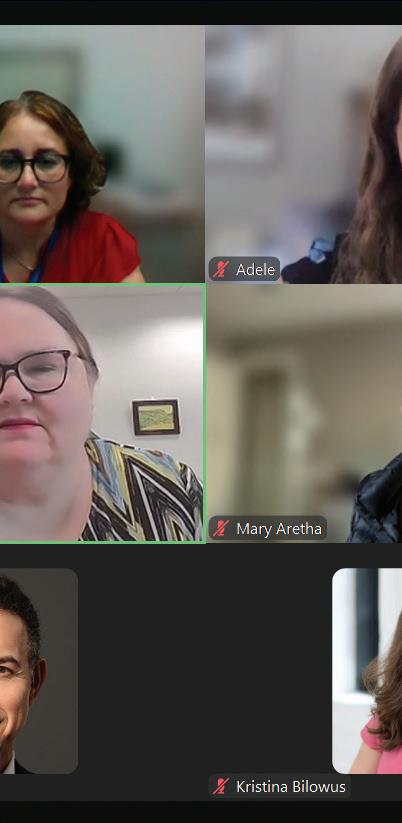

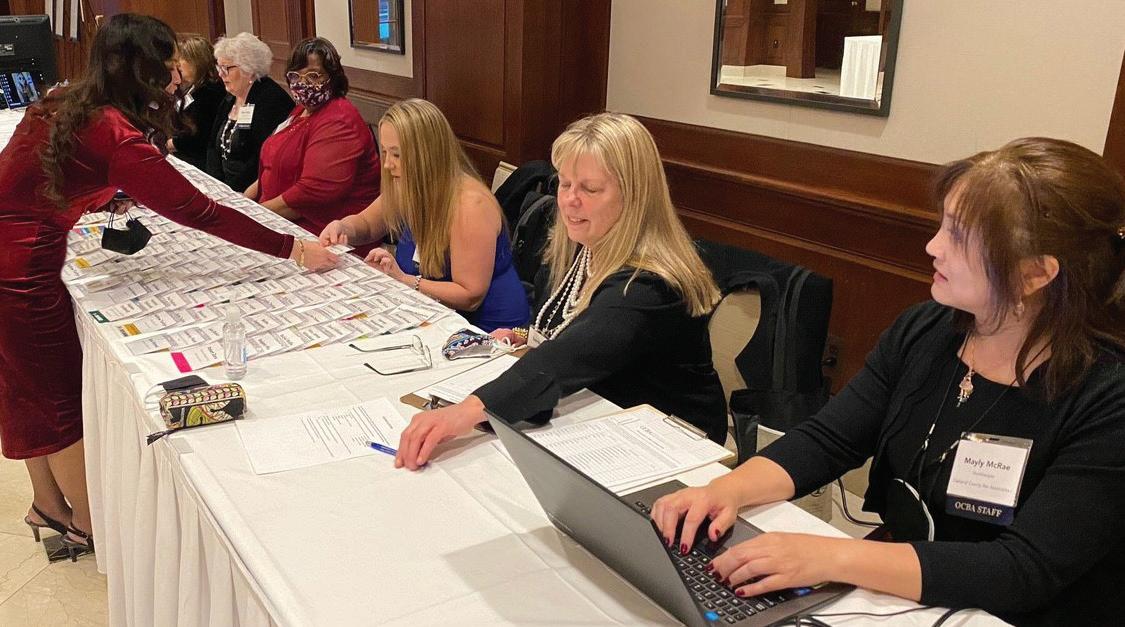
Executive Director
Jennifer Quick (jquick@ocba.org)
Deputy Director
Katie Tillinger (ktillinger@ocba.org)
Finance Director
Susan Maczko (smaczko@ocba.org)
Professional Development Director
Shanay Cuthrell (scuthrell@ocba.org)
Court Services Manager
Cristin Doble (cdoble@ocba.org)
Marketing Communications Specialist
MB Cairns (mcairns@ocba.org)
Marketing Associate
Alexa Enders (aenders@ocba.org)
Bookkeeper
Mayly McRae (mmcrae@ocba.org)
Administrator – Court and Public Services
Janise Thies (jthies@ocba.org)
Administrator – Laches and Foundation
Lori Dec (ldec@ocba.org)
Unless otherwise indicated, please call (248) 334-3400 for assistance.
Address Changes
Billing
Board of Directors
Case Evaluator Applications
Committees
District Court Case Evaluation
Event Photos
Finance
Inns of Court ............................................................
Mayly McRae
Mayly McRae
Jennifer Quick
Cristin Doble
Katie Tillinger
Cristin Doble
MB Cairns
Susan Maczko
Shanay Cuthrell
Judicial Candidate Fora................................................
Laches Magazine
Lawyer Referral Service – (248) 338-2100
Member Illness & Death Notification
Membership
New Lawyer Admissions
News Releases
Oakland County Bar Foundation
OCBA Mediation Service
OCBA Policies
Pro Bono Mentor Match Program
Professional Development/CLE
Room Rental Reservations
Speakers Bureau
Volunteer Opportunities
Website
Janise Thies
Jennifer Quick
Janise Thies
Katie Tillinger
Katie Tillinger
Katie Tillinger
MB Cairns
Katie Tillinger
Cristin Doble
Jennifer Quick
Janise Thies
Shanay Cuthrell
Mayly McRae
Janise Thies
Janise Thies
Jennifer Quick

Lippitt O’Keefe, PLLC has private o ce space available for lease within its professional suite.
Rent includes dedicated receptionist to greet clients and manage calls, full access to multiple furnished conference rooms for client meetings and presentations, o ce supplies and a professional environment in a prime Birmingham location.
This space o ers the benefits of a fully equipped o ce without the burden of managing overhead.
For additional information or to schedule a tour, please contact Vanessa Kari at tel: 248-646-8292 or email: vkari@lippittokeefe.com
Kevin M. Bannon
Regan Glenn
Sean Kenny
Sam Lamrock
Dr. Gretchen Moran Marsh
Adele Rapport
Lyle D. Russell
On August 21, the OCBA Membership Committee hosted an engaging evening of networking and great food at Grand Tavern in Troy. Approximately 50 OCBA members and guests attended, making the event a lively and enjoyable gathering. It was a perfect opportunity to connect with colleagues, strengthen professional relationships, and celebrate the end of summer in a relaxed and welcoming atmosphere.
